|
Have you ever been asked to give a speech? Perhaps it is to say “Thank you” for a gift, or to toast the bride and groom at a wedding, or to introduce an idea to a group. Maybe you have been called upon to witness to your faith in Christ or explain why you are a Catholic. How do you organize your thoughts to make engaging, memorable, even humorous, comments for your audience? How do you overcome the shaking knees, the rambling thoughts, the need to say “umm” in between? Let me tell you about Toastmasters and what I learned. I had been giving presentations for years, but I was like a golfer who went out twice a year and whacked the ball down the fairway, not consistent, not effective, but eventually would get the ball onto the green. Yes, I could give speeches, but I needed to do better. In 2021, I was invited to join a new Toastmasters public speaking club, initiated at the request of Bishop McGrattan. Knowing that there are more than 400,000 Catholic speakers in the Diocese, he wants to encourage us to become better speakers. Bishop McGrattan supports Toastmasters as an excellent way to support the faithful in our role as witnesses to the Gospel, a theme central to our ongoing diocesan renewal. You may be wondering, what happens at Toastmasters? What makes “Heart of the Rockies” Toastmasters special? Toastmasters International is the parent organization that supports Toastmasters clubs around the world. Club members gather in person or online to practice their speaking skills using professionally developed education programs. These programs guide the members through speech preparation, from planning and structure to delivery using effective vocal variety, gestures, courage, and confidence. Basically, you learn how to give engaging speeches to any size of audience. Heart of the Rockies takes the tools of Toastmasters and applies them using a Christian spirit. Members share their experiences and skills in a safe and fun environment. They become equipped to live out the invitation from the Gospel according to St. Matthew: “Go therefore and make disciples of all nations… teaching them to observe everything that I have commanded you.” (MT 28:19-20). We, at Heart of the Rockies, invite you to join us for one hour each week to grow in your skills as a witness of Christ to the world. Heart of the Rockies meets online Monday evenings from 7:00 – 8:00 pm and is open to everyone ages 18 and older. For further information on how to connect or to visit Heart of the Rockies Toastmasters club, please contact me at [email protected]. As a long-term toastmaster and member of Heart of the Rockies once said, “Toastmasters told me to be better, and I am better because of Toastmasters!”
0 Comments
Graduating from high school was an amazing achievement for me. As was the day my wife and I got married in 2002. What a glorious day that was! Looking back, my wife and I chuckle at how we were babies compared to the adults we are now. We had 2 beautiful kids, a son and a daughter. We attended the LDS church sometimes and both kids were baptized in the Mormon faith, but that was as far as it went. I got a job in the oilfields as a journeyman pipefitter and worked there for 15 years. The job was physically and emotionally stressful. I began drinking to cope with pain from injuries and trauma from accidents I witnessed. It was all part of the ‘oilfield culture’. Because I was gone from home for long stretches of time, I struggled with a new addiction: pornography. In 2013, I was arrested for drunk driving. I don’t remember much, but I do remember the amount of heartache and money it cost my family. This almost destroyed my marriage. So, I decided to get sober. I have a lot of regrets about this period of my life, but the two biggest are that I didn’t get to enjoy my kids growing up and I was a terrible husband. God bless my wife (we have been married 22 years) for being such a strong and wonderful woman. Eventually, I lost my job in the oil patch due to the industry downturn. I got a job in Medicine Hat, which meant our family was finally together. My desire for pornography lessened but didn’t stop. COVID arrived, and it was hard on our teenage children, especially my son, who fell down the wrong path. He dropped out of school, and there seemed to be total disorder in our home. In June of 2023, when my son got into serious trouble, I felt that I failed as a husband, a father, and a human being. It was a very low point in my life.
Written by Ray, a parishioner of St. Patrick's, Medicine Hat. Abridged by Alice Matisz. Photos courtesy of Ray and St. Patrick's Parish. For the unabridged story, email [email protected] for a copy.
With prayer and the Holy Spirit as our guide, we made progress. Parishioners were introduced to and informed about the Pastoral Renewal and its importance through pulpit announcements and email updates. Posters were also put up, including some of our own, which were made on very bright paper to ensure they were not missed. When it came time for the survey in June, we hit the ground running. Promotion of the survey was approached the same way as the Renewal information was shared, with pulpit announcements, information, and reminders via email and posters. On Corpus Christi Sunday, June 2, 2024, we adopted the process of not having the procession after the final blessing at Mass (this had been noted to parishioners in shared information before June 2nd) to give time for survey completion. Father Silvano asked all to stay after Mass and complete the survey, which he noted was not mandatory, but greatly encouraged. All parishioners listened, and we had a great response. We received everyone's completed surveys on the first Sunday of the Survey. Our aspirations and goals had been met, above and beyond, in one Sunday gathering! St. Mary’s parishioners have a deep dedication to our church and to the parish as a community. Their support is unsurpassed when it is needed and asked for! Everyone definitely came together to help achieve a successful end result with the Renewal survey—each and every parishioner is to be commended! We will await the survey results, which will be sent to our parish, as these will continue to guide us on the path of the Renewal process. When the results are received, they will greatly aid us in identifying the areas we need to focus on and address moving forward. The Renewal team will review the results and then present the information to the parishioners, gathering feedback as the journey continues. Although at the beginning, the needs for and presentation of the survey were a tad daunting, prayer, the Holy Spirit, and St. Mary’s parishioners reign supreme! Written by Elaine Carley, Parish Renewal Team chair of St. Mary's Parish in Beiseker. Photo credit: Town of Irricana.
Three challenges have been laid out in the Diocesan Renewal: Form missionary disciples in Christ; Be a church of encounter and witness; and Strengthen family life. These goals are very much in line with the work I'm trying to do with Heroicmen, so I have had the opportunity to spend a lot of time thinking about this mission.
I reflected that as the father of the groom it was my responsibility to be a loving and authentic representation of the Catholic Church to everyone attending. I always try to see the face of Christ in all people of different walks of life and love them as His children. I wanted them to leave knowing that we are a church of welcome. Deacon Stephen Robinson, who officiated the wedding, did an excellent job of letting them know why we were there in the presence of God to witness a sacrament. We don't have to (and shouldn't) sugarcoat or water down the Gospel. The following day was my youngest daughter's birthday, and she wanted to bring her siblings from Idaho and British Columbia to the Saint Francis Xavier Chaplaincy Mass at the Cathedral. At the end of Mass, the young man seated in front of us turned to my second youngest daughter and questioned how we could worship with the kids making noise and disturbing his "worship experience." He then questioned me and my wife. In that moment, I tried to engage him but realized I was not going to gain any traction. So, I told him that God loves him and that I needed to leave as we were going out for a family dinner. What the young man did not realize was that my daughter had taken in two young nephews who had been seized by Social Services. The boys carried with them the trauma of losing their father this past Christmas, and a mother who is struggling with addictions. I was able to settle one of them during Mass, and he actually fell asleep. We listened to Fr. Troy's homily, where he talked about a man who was lost to drugs and alcohol but found his way back through serving the poor. Fr. Troy then invited us to journey together with the goal of becoming saints. I recall Bishop Scott McCaig saying, “The renewal periods in the Church are messy”, and I wish I could have spent more time talking to the young man to better understand him. We are not always going to come to a definitive answer in that moment. We do have to remain focused on Christ and listen to the Holy Spirit to continue to move forward. We all need to consider how we represent Christ to those visiting our churches, especially our young people. Many young adults are attending for the first time and worry about their kids making noise. We need to let them know they are welcome, as they are the future of our church. There are many others who are lost and don’t know the love of the Father. They might have a grandma or relative praying that someone like you will be a light to their family member. I was inspired and challenged by these lines in St. Patrick’s Breastplate, Prayer for Protection: Christ in the heart of every man who thinks of me, Christ in the mouth of everyone who speaks of me, Christ in every eye that sees me, Christ in every ear that hears me Let us continue on this path of Renewal by bringing Christ to the world around us!
I have experienced this improved hearing when hiking three of Waterton’s Front Range Six because each peak taught a spiritual lesson. Lesson One: Preparation Matters When I accepted the invitation to hike Bertha Peak, I was not fit enough to ascend twelve hundred meters on a 15 km out-and-back trail. I hate being embarrassed more than I hate working out, so I started getting up early and doing a high intensity workout in my basement consisting of thousands of squats and lunges to get my legs, heart, and lungs ready for stairclimbing at high altitude. I then followed my workout with a 40-minute walk with my wife before biking to work. The spiritual parallel is that I also needed to build a routine of prayer and spiritual reading and do it every day (even when I didn’t feel like it). When I started the permanent diaconate program, I did not have prayer routine, but St. Paul tells us to pray unceasingly and give thanks in all circumstances. This takes discipline and practice, and prayer became part of my morning workout. The liturgical calendar exemplifies the need for preparation beautifully. Advent and Lent provide sacred times to make way for the Lord’s presence at Christmas and Easter. The mountaintop experience (like Christmas morning) is short-lived, but the weeks of preparation are essential to experiencing the fullness of incarnational joy throughout the year. Daily prayer, even when it’s dry and boring (perhaps especially when it’s dry and boring) tunes us in to God’s frequency. Lesson Two: It’s Easy to Get into Trouble Mt. Galwey was a relentless, 7-hour battle against gravity that mirrored the truism, “There is no plateau in the spiritual life.” You are either climbing or losing momentum. The Front Range Six are not technically climbs, but scrambles. Erosion creates scree, a collection of broken rocks that can become slippery and dangerous. On the way up, a dislodged piece of shale can quickly turn into a deadly projectile (helmets are recommended). On the way down, I slipped on a slab of dust covered shale and gashed my hip. It was an ordinary step, like the countless other steps I had taken that day. As I scramble towards God, the most dangerous hazards I face are the simple ones, the spiritual equivalent of a sprained ankle. My pride makes it easy to step into sin, and the step that puts my soul in danger will look and feel like every other step I have taken successfully because the devil uses my overconfidence against me.
This could have been my peak of disappointment, but God revealed to me what he wanted me to see: the reward is not up to me. My job is to put in the work, ascend towards him, and accept what he offers. At the foggy peak, I remembered a question from Rabbi Harold Kushner’s The Lord is My Shepherd: Do you love me because I am God and give you everything you want, or do you love me because I am God? My routine of daily prayer enabled me to receive this message about humility and recognize how often I superimpose my desire on God’s plan. Much of what I see depends upon what I am looking for. If I want to find reasons to doubt God or be angry with the Church, I don’t have to look very hard. But if I trust that God’s love means that he always has something to teach me, I will find that too, not because I am naïve, but because he promised, “Seek and you shall find.” I sought Him in the mountains, and He was there (but He was with me in the basement, too).
Rewind to June 2023. Out of pure luck, I saw a posting for a teaching position with Christ the King Academy, a middle school in the same small town where I lived. I happened to know the vice principal, Errin Nelson, and took a chance and emailed him to ask some questions. Fast-forward to the end of that week, and I had accepted a brand-new teaching position in another school division! I was leaving my home division, which brought me to Alberta in 2011. Scared? A little. Excited? Definitely. I felt in my heart that I was called to make this big change. My daughter, Anna (8), joined me. She and I are glued at the hip, and she wanted to move to Holy Family Academy to remain close to her momma. This is when I began to notice incredible divine intervention. It sounds so strange to say out loud, but there is no doubt in my mind that I was called to this position. Several signs appeared over the next little while that made me know for certain I had made the most incredible choice. Jumping forward again, I learned about RCIA, which was going to begin in October. I have always had a ton of questions and often wondered if there was 'more'. Out of my personal and very private fear of death, which only grew stronger once I became a mother, I reached out and signed myself and my daughter up. Once my journey of learning about the Catholic faith began, I have not looked back. One particular example illuminated for me was this; my classroom saint is St. Joseph; I was born in Saint Joseph's Hospital in Hamilton, Ontario; and my grandfather's name was Joseph. This Easter, my incredible daughter Anna and I were baptized and fully initiated into the Catholic Church at St. Mary's in Brooks. We were baptized together and received the Sacraments. My heart is so full and so incredibly grateful to several amazing people who have made me feel more like a family than I can ever express.
The teachers and staff of CTK welcomed my daughter and I with open arms. I am forever grateful and will hold the CTK and Christ of the Redeemer School Division families in my heart and prayers forever. Submitted by Sarah Parkin, Teacher at Christ the King Academy. Photos courtesy of Sarah Parkin.
When my husband Jim and I moved back to Calgary, I needed to find a way to meet like-minded, faith-filled women. I thought, what better way to do so than to join the CWL? So I did. At my first meeting with CWL, I volunteered to be the treasurer, and thus began my journey with CWL. Our council holds many activities and projects to help our parish, St. Peters; be it ministry masses where my League sisters serve as lectors, ushers, greeters, Extraordinary Ministers of Communion or sacristan; the fundraisers to help our beloved charities; collecting items for KARA or Elizabeth House, or offering an education bursary for girls going into post-secondary education. As I grew in my knowledge of the Catholic Women’s League, I realized that we were not just funeral lunch ladies, although this service that we provide to grieving families is very important to us. But we are much more than that. Our three pillars—Faith, Service, and Social Justice—perfectly describe what we are all about. We hold powerful prayer services, living rosaries, and annual spiritual retreats, to name a few. We advocate for important issues such as the sanctity of life, from conception to natural death. In 2012, I was honoured to attend the National CWL Convention in Edmonton, as a resolution that our own council researched and presented “to increase Employment Benefits for Adoptive Mothers” was adopted and then presented to the federal government. It has since come to fruition, as adoptive parents now receive the same benefits as parents who have their biological children. I was proud to serve as the President of St. Peter’s CWL council, as I loved working with and building relationships with my League sisters. As a servant leader, I grew in my faith, especially with the support of our spiritual advisors. In 2013, I was appointed diocesan CWL secretary by president Carol Schlachter. Jim said he’d support me, and my CWL journey with Calgary Diocesan Council began. I had no idea what I had agreed to, but it changed my life. Reflecting on this eleven-year journey, there were many highlights. Here are just a few:
Yes, there were sad moments too, when we bade farewell to two of our diocesan presidents, Carol Schlachter and Sharon Malec, as well as many other League sisters. And grieving alongside our sisters when they lost loved ones. Crying together is part of this amazing sisterhood we belong to.
When I went into a bookstore to buy my first ever physical Bible, I noticed also a Catholic Bible on the shelf. The man who was looking through books beside me saw that I was searching for a Bible and he told me to stay away from “that one” while he pointed at the Catholic Bible. So I was soon baptized in an evangelical church. On Saturdays, you would find me with a mic and speaker preaching the gospel with a group of people. I had a strong desire to share the love of God with others. I found work at Hope Mission, a non-denominational Christian ministry, working with children and youth. But then I was introduced to the teachings of the early church and Catholicism through YouTube. I soon became convicted of what I knew to be true and true teachings of Jesus and the apostles. I learned more and more about Catholic theology and saw how beautiful it was, and how it was all in scripture, contrary to what many people would say. I wasn’t shy to share what I learned with others. My friends and co-workers, who were mostly Baptists and Pentecostals, were confused that a non-Catholic would hold to Catholic beliefs. “Why is this guy talking about Mary and defending the idolatrous Catholic worship of Mary?” While my entire theology was being tested, something odd happened at work. I kept seeing a rosary in my workplace. I told myself, “This isn’t the right place for it.” One day, I found it on my work desk and I took it home. As I wrapped the rosary around my hands, I was hesitant to pray the Hail Mary. Then I thought to myself; I can defend the intercession of Mary with scripture, so why couldn’t I pray the prayer? Then I slowly began to pray the rosary and lots of it. It led me to see the Blessed Mother in a new light. As I went on, the Lord revealed to me his presence in the Eucharist. As I learned more and more of scripture and the faith, I started to see the truth of the Eucharist and the Lord’s true and real presence on the altar. After this, I didn’t want to be anywhere other than in front of the altar of a Catholic church. He truly did answer my prayers. I inquired with the RCIA at St. Mark’s Parish in Calgary, and went to morning masses as much as I could. The Easter Vigil was around the corner, so I made the decision to become Catholic. I was confirmed and received the Body and Blood of Christ on March 30th, 2024. Three weeks later, I ended up getting fired from my job after serving there for one year, simply because I was openly praying the Hail Mary with the children I worked with. Right now in my faith journey, I want to grow closer to the Lord in the Eucharist. Despite uncertainties I’m experiencing, my faith and hope in the Lord continues to grow stronger and he continues to pour his graces on me through his sacraments. I have no doubt that God was the one who sought me first and continues to call me. Written by Rooben Aurumugam, St. Mark's Parish, Calgary. Photos courtesy of Rooben.
Let us stir the longing for renewal in our own lives and families as we seek a closer relationship with Jesus. Let us continue to mentor our parishes, through the “genius of women” as we create a church of encounter and witness, as we strengthen our families and create missionary disciples. To our dear Catholic Women’s League: Thank you! Bonnie Annicchiarico Photo credits: Catholic Women's League. For more photos, click here
Volunteering Opportunities at Calgary Remand Centre
Volunteering Opportunities at Calgary Correctional Centre
As with any volunteering opportunities, we require a Vulnerable Sector Police Information Check (VSPIC), the completion of the Praesidium Academy sexual abuse prevention training, and the agreement to the Code of Pastoral Conduct and Accountability for Volunteers. This information will be provided to you after submitting your application. While they were talking and discussing together, Jesus himself drew near and went with them. But their eyes were kept from recognizing Him." ~ Luke 24:15-16 This was a passage that many parishioners, who participated in St. Albert the Great’s Parish Renewal Gathering on May 4, 2024, pondered deeply and discussed heartfully during the Lectio Divina. One parishioner said, “How many times do we fail to recognize Jesus in one another? Yet He is with us all the time.” Another one expressed, “we were given the beautiful gift of sight, but we often close our eyes and fail to see the beauty of Jesus present in us.” Last Saturday’s gathering at our parish was indeed an eye-opener for many of us. While in the facade of our beautiful church we seem lively and vibrant, and indeed we are, there are areas we may be failing to recognize in our parish community. It could be families struggling in their relationships, our youth getting lost in their paths, our young adults who don’t know where to start, friendships strained and broken by past hurts, the elderly who may have been forgotten, or even one’s struggles with work in a weakening faith life. These are some of the “things” that are happening in the lives of parishioners. When Cleopas answered Jesus, “are you the only visitor to Jerusalem who does not know the things that have happened there in these days?” Jesus replied, “What things?” Well, we can talk to Jesus and tell Him, Lord these are the things! Very quickly, Jesus will probably tell us how foolish we are because it is necessary for those things to happen so “He can enter into His glory”. In another small group conversation, a parishioner reflected on the presence of sufferings in our lives as a way of God to reveal His glory. “What’s important is to know that we are not alone and that we have Jesus and the entire community to walk with us in our journey and the sufferings that come with it. It is comforting to know that I have a home and that if I experience some suffering, I have an entire community that prays for me.” That hits the note!
What a great day it was for our parish, you can strongly sense the Holy Spirit’s presence. “I didn’t know what to expect for attendance, but everyone’s presence here is truly a blessing to our parish. St. Albert the Great parishioners are the best!”, said Fr. Andrew who gave his full support and guidance throughout the planning of the gathering. When asked what his vision is for the Renewal, he said, “my goal is for everyone in the parish to call this home.” Sounds like we are on the right track! The journey to Renewal is long and not easy. Bishop McGrattan said and was quoted many times throughout the gathering, “Renewal is not a sprint, but is a marathon.” St. Albert the Great is gearing for it! As a renewal team member said, it is not an 8-member team but an entire parish that will run the marathon. To affirm that, everyone in the gathering expressed their enthusiasm when the word You was changed to We, as they exclaimed, “WE are Called, WE Matter, and WE Belong!” Thank you Jesus! Submitted by Florian Bernardo, St. Albert the Great Parish Renewal Team.
The Canadian Conference of Catholic Bishops, the Pontifical Academy for Life, and other key partners are organizing an international interfaith symposium on palliative care. Entitled “Towards a Narrative of Hope”, this symposium will take place on May 21-23, 2024, in Toronto. With the objective to educate and build a culture of social responsibility in palliative care, experts from medical, ethical and pastoral contexts will focus on translating insights from the presentations and discussions into concrete strategies of actions. You can already watch a short video on the purpose of the symposium and the vital role of faith-based organizations and communities in promoting human dignity, compassion, and respect for patients and their families through the illness and dying process. Please find below, for your information the videos announcing this international interfaith symposium on palliative care. Video in French by Bishop Noël Simard, Bishop of Valleyfield QC, and Member of the Pontifical Academy for Life (PAV), and Chairman of the Scientific Board for the Symposium: https://youtu.be/zBYKDGrvDlE?si=bHQYZ51-Ol0cuazQ
“I’m very good at Lent,” my friend confided, “but I’m not very good at Easter. I struggle with joy.” My friend said this to me after I had spent most of the day reading Catholic works from the Middle Ages as part of our diaconal formation course from St. Mary’s University. When my friend confessed her struggle with joy, St. Anthony’s severe advice was fresh in my mind: “The fibre of the soul is sound when the pleasures of the body are diminished.” St. Anthony obviously loved the desert of Lent. St. Benedict’s rule includes not seeking after pleasure, hating one’s will, remaining aloof from worldly ways, and not provoking or loving laughter. Benedict was definitely a Lent-lover. According to St. Bonaventure, the Holy Spirit whispered to St. Francis that “spiritual merchandise has its beginning in the contempt of the world,” and so St. Francis sought lonely places where he could voice groanings that could be uttered only to the Lord. It is perhaps easy to see why some philosophers call Christianity sour, dour, and humourless. More confusingly, though, these statements are hard to reconcile when considering Jesus’ comments, “Remain in my love. If you keep my commandments, you will remain in my love, just as I have kept my Father’s commandments and remain in his love. I have told you this so that my joy may be in you and your joy may be complete” (John 15: 9-12). Jesus is clear: if we keep his commandments to love one another as he loved us, to carry our cross daily, to feed his sheep, and participate in the Eucharist, we can partake in the same joy Jesus brings into the world when healing people or laying down his life for his friends. Joy should not be mistaken for a purely emotive state. Emotions are fleeting, whereas the joy Jesus describes is durable, independent of circumstance, and as much a part of what we will as what we feel. A resilient joy free from the vicissitudes of life is the only way we can make sense of comments from St. Paul that we might be “as sorrowful [as death] yet always rejoicing” (2 Cor. 6:10), or “I am overflowing with joy all the more because of our affliction” (2 Cor 7:4). The next morning, I revisited the course readings from the Medieval masters looking for evidence of this durable joy, and I found a joy grounded in our creation. St. Bernard of Clairvaux points to the foundation of joy: “it is only right to love the Author of nature first of all… we should love Him, for He has endowed us with the possibility to love.” We love God because He created love and offers us the opportunity to love, to praise, to worship, and to rejoice in His work. God’s very being is an experience of loving intimacy, and this is the ground of our inmost self, as well. Julian of Norwich adorably describes this shared identity as a process of oneing: “He knit us and oned us to Himself.” This oneing takes some effort; it takes work for Jesus’ joy to be complete in our lives. But in those rare moments when we are in harmony with Jesus and united to the Father’s will, the Holy Spirit will provide an unshakeable confidence that must be proclaimed because the only thing more wonderful than experiencing harmony with God is experiencing this oneing within a community. The Eucharist is the ultimate sharing of a commmunal presence with Jesus, and every time I accept his Body, I recall Mother Teresa’s prayerful declaration: “From now on, nothing can make us suffer or cry to the point of forgetting the joy of your resurrection!” Eucharistic participation provides a joy that is no longer just an emotion, but a permanent orientation to life itself. My Sunday Missal for the Third Sunday of Easter translates Luke 24:41 as, “While in their joy they were disbelieving and still wondering.” The Apostles were full of joy and doubt. That’s the struggle. While I have experienced moments of ecstatic joy, most of my life is comprised of ordinary moments where I “cling to the naked promise of faith,” in Henri Nouwen’s words. In dark moments, all I have to cling to is the promise that Jesus told me the truth; that if I keep his commandments, I will remain in His love and my joy will be complete. The cross protects us from a toxic positivity and a pollyannish view of life. But the cross is also the necessary means to joy, a fruit of the Spirit that, like all fruit, needs to ripen. Joy is still ripening within me, and the struggle of the Christian life is to create the ideal conditions for joy to grow.
Before I became a Catholic, I led a fairly ordinary life as an independent woman in the secular world. I didn’t see much need for church-going or God’s help unless there was a snowstorm or a personal crisis. I was raised by Christian (Protestant) parents, my Father by Mennonites in the First Evangelical Free Church here in Calgary, and my Mother was raised Baptist. When they divorced, they stopped attending church regularly, and so did I. I was generally relieved to leave the hypocrisy of my upbringing behind and tackle life without much thought to the condition of my soul. Somewhere in my late 30s, I started noticing one particular question that kept coming up repeatedly: ‘How do I know what ‘right action’ is?’ I began searching for the answer to this question because it seemed to be at the root of both the suffering and the happiness in my life. I desired more happiness and less suffering. I asked more and more people this question and studied different philosophies, trying to understand how humans figure this out. It was fascinating! Around this time, I also wanted to quit smoking and went into a thrift store and picked up something that I could wear on a necklace to fiddle with when I felt the ‘itch’. It was a silver Miraculous Medal of the Virgin Mary, but of course, I did not know this at the time (I’m still wearing it today). A few years later, I met a friend in Montana who was a Catholic with a sound intellectual faith, and I asked him a little differently: ‘How do you know you are doing God’s will?’ He told me to write it down, and he would ask his priest on my behalf. The reply I received piqued my interest and appealed to my Protestant roots: ‘It is written on your heart.’ When I returned to Calgary, I looked up the closest parish to my house and contacted St. Joseph’s Parish about RCIA. Without over simplifying a rather deeply transformative process over several years, today as a Neophyte of one week exactly, I feel quite different from the woman who didn’t see much use for God before. I feel like I belong. The tradition of the Catholic Church holds the knowledge that intelligent Christians require to build faith. It succinctly and articulately addresses any and all questions that arise when it comes to inquiry about God. Anything that can not be explained is called a ‘mystery’ and fulfills a just purpose, as it is aptly named. I explain the Catholics to my Protestant kin as God’s scientists, my relatives, of course, are God’s ‘Hippies’! I had many questions about God growing up and into adulthood that no one could answer, other than to say that ‘I should pray about it’. So I did, and was confused, and then dropped out. (How does one know what thoughts are mine and which are God’s?) Since becoming a Catholic, I don’t worry about this question as much anymore. I don’t know if that means I have found the answer or the fruits of the Holy Spirit or, if it even matters which?! I also don’t really care too much about what secular people think anymore. The endless cycles of anxiety and depression driven by superficial pursuits are soul-crushing and stressful. It doesn’t mean I don’t feel that way, it just means I approach reprieve differently now. I read my bibles now (they’ve surprisingly multiplied!) and look forward to attending Mass. I don’t pray for solutions to the problems anymore, rather I think of what gifts from God I could really use to help me see things differently, if it is His will to reveal his plans. So far, I don’t have any more insight about what God's plans are for certain or His thoughts (Isaiah 55:8). However, I can recognize Joy, Peace, Patience, Kindness, Goodness, Gentleness, Faithfulness, Modesty, Self-Control, Chastity, and Love all around. I’m on the lookout for these graces now. How I feel is less important than before, when it seemed to be all I had to go on. Who I am, my purpose now, and the way in which I live this truth is rooted in something Great and I am not afraid. Written by Michelle Thiessen, baptized on Easter Vigil 2024 at St. Joseph's Parish, Calgary
Note from the editor: We're thrilled to share insights from Fr. Tim Boyle's third year of service with the Diocese of Mackenzie-Fort Smith during Holy Week. Dive into the highlights of his northern journey, alongside the inspiring story of Fatima. Her dedication as a Missionary Disciple in the Village of Gameti, NWT, truly captures the essence of daily service, sacrifice, and true commitment. Enjoy the read and the photos! ==== God has given our church enough ministerial vocations. Many of them have been given to women. Fatima Lee received one of those calls. Born in Hong Kong supported by a mother who believed in education, Fatima’s call to serve God was shaped when as a young women she left Hong Kong to study theology at Louvain in Belgium. Her vocation to serve the church was put on hold when she married Bernard and together they raised their two sons, eventually settling in Toronto. In the course of time she found her way back into ministry and served the People of God in a parish for many years. The sudden death of her husband eight years ago resurrected her original vocation to be a missionary. When the Archdiocese of Toronto invited local priests to serve in the north, Fatima asked Bishop Kasun if they would sponsor a layperson. Six years ago she began a new chapter in the Diocese of Mackenzie-Fort Smith. She serves as the Diocesan Religious Education Coordinator, creating and offering sacramental preparation programs for catechists, working with lay leaders and on various projects for the Bishop. But her true heart’s work is as the spiritual leader of Village of Gameti where she shares reflections on scripture and leads their Sunday communion service whenever she can. When I first visited the village with her, I thought of the winter north as something similar to their picturesque winter castle festival. The ice road is seen from the air as a straightforward, simple, smooth drive. But accompanying Fatima this year, I have begun to see that ministering in the north is a mix of breathtaking beauty and heartbreaking challenges. On Wednesday of Holy Week, we drove the 300 km six-hour winter ice road to Gameti. Driving the winter ice road captures ministry in the north better than any other experience. We went through sections of forest surrounded by skeletons of trees destroyed by the fires.
Gone was the beautiful clear ice.. the open skies. The lakes and the forest we travelled through were now snow-covered, and the night was silent.
Gazing out into the landscape lit only by our headlights, Fatima remarked that having faith and ministering in the north was like driving the winter road at night. You can only see what the headlights show you. Only by trusting and moving forward will you discover that God has prepared a path for you. This year, National Volunteer Week will be from April 14 to 20, 2024, and we're taking a moment to celebrate the incredible impact volunteers have on our parish communities! Our volunteers, the quiet champions of our parish, embody love in action. They uplift those in need, prepare the sacred liturgies and sacraments, maintain our sacred spaces, and nurture our young during their formative years. Their dedication echoes far beyond the Holy Week preparation and Easter Sunday—a constant reminder of the impact one person can have in the lives of many. We’re profoundly grateful for their presence and the grace they bring to our Church.
On Saturday, March 9, 2024, St. Mary's Cathedral was illuminated by an inspiring expression of faith and community—the Eastern Rite Chaldean Catholic Community's modern rendition of the Passion Play. This event drew over 300 faithful, who were moved by the actors' passionate portrayal of Christ's trials and tribulations. The evening was framed by prayers and reflections in Aramaic led by Fr. John Jwad and Msgr. Noel Farman from St. Mary's Chaldean Parish. The entire proceeds from ticket sales and donations were dedicated to the building of a church for Calgary's 300 Chaldean Catholic families. Immerse yourself in the visual journey and reflection from the captivating photos below. These scenes will take you into the heart of Christ's passion. Contributor: Fr. John Jwad, St. Mary Chaldean Community, Calgary.
Photos courtesy of St. Mary's Chaldean Community. “Our Lord moves amidst the pots and pans,” St. Teresa of Avila once said, and indeed, I often find God in a busy kitchen. I love cooking, which was once described to me as the art of redistributing water, which is simply a clever way of saying chefs are masters of matter. Western culture is often derided as being materialistic, but the philosopher Alan Watts disagrees. In a passage contemplating proper Christian materialism, he writes:
St. Augustine noted that things are to be used, but only God is to be enjoyed. We enjoy the goodness of God’s creation in the bounty on our table, but especially in those at our table. As the Catholic Bishops of Japan wrote in Reverence for Life, “To sense each creature singing the hymn of its existence is to live joyfully in God’s love and hope.” At the best feasts, everything and everyone is singing joyfully in God’s love. One pillar of the Diocese of Calgary’s Pastoral Renewal is to Strengthen Family Life, and eating together as a family is a powerful bond. Harvard University’s Graduate School of Education says only 30% of families manage to eat together on a regular basis, but those that do experience lower rates of depression, anxiety, substance abuse, eating disorders, and higher rates of resilience and self esteem. The Father has always been calling us to a meal because this is one of the ways he keeps us free from all anxiety. A family dinner can be a minor mirror of the Mass. My most joyful cooking comes when I remember to recite my favourite lines from the Eucharistic prayer: Fruit of the earth and the work of human hands… Fruit of the vine and the work of human hands… A cosmic vertigo occasionally overwhelms me at the simple act of looking down at a carrot in my left hand and a knife in my right. Everything – the sun, rain, earth, fire, time, and human craftsmanship – everything is in my hands, and as I chop, I often recollect a passage from Martin Luther King Jr.’s A Christmas Sermon on Peace: You go to the bathroom and reach for the sponge, and that’s handed to you from a Pacific Islander. You reach for a bar of soap, and that’s given to you by the hands of Frenchman. You drink your coffee that is poured in your cup by a South American, or if you prefer cocoa, by a West African. Have you ever stopped to think that before you finish eating breakfast, you’ve depended on more than half the world?"
All of which likely explains why my favourite dishes are reductions, when the steam goes up fragrant from the pot like incense. In risotto, for example, at a crucial stage you must burn off the alcohol from a dry white wine to concentrate its sweetness. In pisto manchego, the water from the tomatoes, peppers, and squash slowly bubbles off until there’s nothing left but the flavour of God. And in this holy season of Lent, it is important to keep in mind that this sacred materialism allows us to fast in a meaningful way. When we temporarily go without God’s bounty, we turn away from the idols of comfort and convenience to focus our attention on the Father’s loving provision. When families reclaim this communion at the domestic church’s dinner table, they will once again find God in the midst of pots and pans.
When I travel, my mind wanders. I hadn’t seen the movie Bladerunner in years, but while waiting to depart on the redeye for a pilgrimage to Quebec, the crescendo of this movie kept replaying in my mind. Roy Batty, the artificially intelligent creature, is fighting for his life when he delivers his famous speech beginning with the words, “I have seen things you people would not believe.” We were making a pilgrimage to various shrines in Quebec to thank God for helping us through 15 years of marriage, a marriage we had both fought hard for. We journeyed with gratitude for answered prayers, and for continued discernment on our diaconal journey. My wife and I honeymooned in Quebec in 2008, and we first visited St. Joseph’s Oratory on that trip (years before she would become Catholic and my return to the faith). The visit left a deep imprint upon us, and we were excited to return with our 12-year-old son. We arrived early on August 9th, a detail God orchestrated, to take in St. André Bessette’s birthday celebration. Pilgrims’ prayers to St. Joseph St. André’s devotion to St. Joseph was, quite literally, monumental. I tried to focus on St. André, but the sad climax to Bladerunner kept replaying. I supposed that silent St. Joseph, if he were to deliver any speech, would likely begin by uttering the same words: “I have seen things you people would not believe. I’ve listened to angels tell me that Mary had conceived the Son of God by the power of the Holy Spirit. I witnessed kings bow before my son and offer him precious gifts in a manger, and I was visited by God’s messengers telling me to flee to Egypt. I heard Simeon’s prophetic words that my foster-son was God’s light revealed to all nations, the same boy who impressed the wisest rabbis in Jerusalem. Oh yes, I have seen things you people would not believe!” Father André could also exclaim, “I have seen things you people would not believe.” The humble doorman who funded the Oratory’s original chapel with profits from haircuts would see the lame walk and the sick healed at this remarkable shrine to the patron saint of Canada. We arrived at St. Joseph’s on a fresh dewy morning in Montreal. After touring the Basilica and attending Mass in the Crypt Church, we prayerfully walked the larger-than-life outdoor Stations of the Cross. I’d been up for about 30 hours at this point, and I was starting to feel (and perhaps smell) like a pilgrim. I was tired, hungry, and sweaty, but walking the Stations reminded me that I could never feel as tired as Jesus did on the road to Calvary. “The statues look like they’re weeping,” my son said. Indeed, the stone faces were marked by years of exposure to the elements and stains ran down their faces. As we climbed toward the crucifixion, my son’s observation helped me make sense of another line from this famous sci-fi dirge: “All those moments will be lost in time, like tears in the rain.” This forlorn heartache expressed the anguished love I had for my life during my years as an atheist. I experienced awe without glory, wonder without purpose, passion without peace. The replicant Roy Batty loves his life and mourns he can’t have more of it because he inhabits an irredeemable universe that can’t love him back.
Brothers and sisters I didn’t know and would never meet reminded me how big God’s love is. St. Joseph strengthened me in my noblest vocation to care for those God entrusted to me, my wife and family. And St. André still proclaimed how to live an authentic Catholic life in a skeptical world. I sought and found things some will never believe - I would never be alone, not even in my final hour, and there would be, in the slogan of St. Joseph’s Oratory, peace beyond my days.
During this season of Renewal, I would like to share the story of Ysabelle Galang - a living embodiment of pastoral renewal in our parish. Ysabelle is a young woman who just received her Sacrament of Confirmation last year. As part of the preparation for Confirmation, our booklet required the confirmandi to complete a Mass book. This involved attending mass and answering specific questions related to the service, such as the opening song, the book of the Bible from which the Gospel was read, and reflections on the homily. Ysabelle demonstrated great interest in this task, often asking me to help fill in any blanks she missed during mass. I would show her the Lectionary to reference the book. Her curiosity led to engaging dialogues during these encounters. Upon reviewing the rest of the confirmation booklet, she realized that she needed to serve the church or community in some capacity. When asked for suggestions, I proposed altar serving. She embraced this role with enthusiasm, attentiveness, and excellence.
Written by Fr. James Hagel for Faithfully, pastor of St. Gabriel the Archangel, Chestermere.
|
Author
Catholic Pastoral Centre Staff and Guest Writers Archives
July 2024
Categories
All
|
































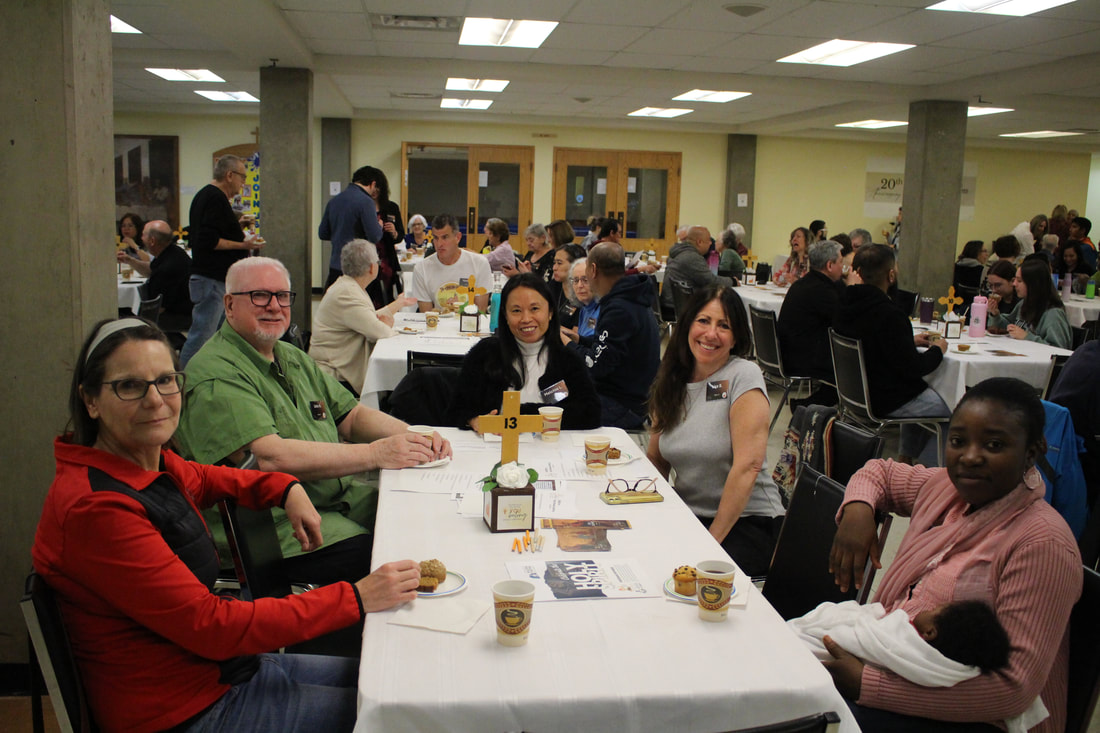

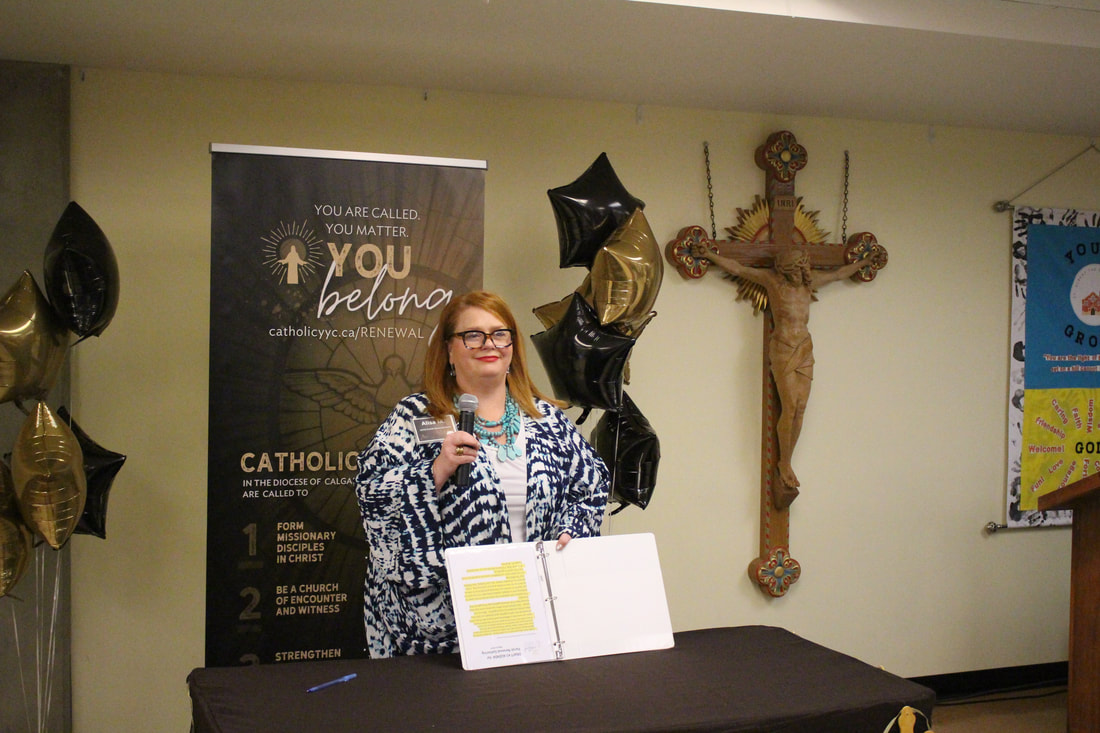
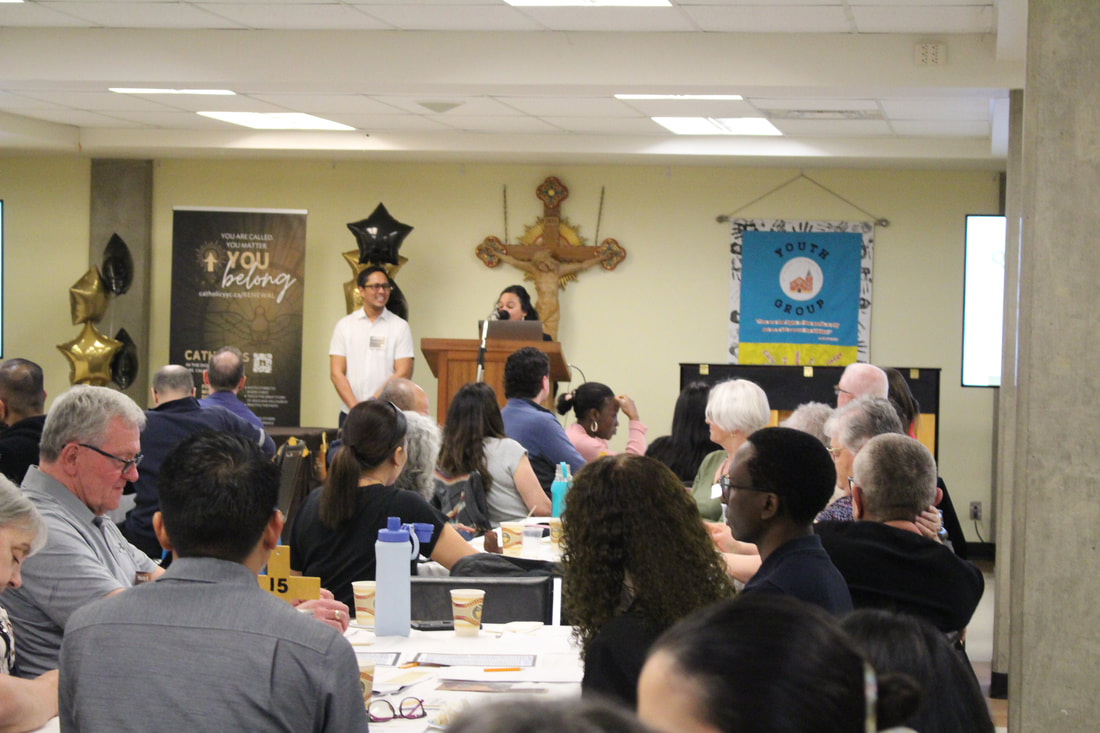
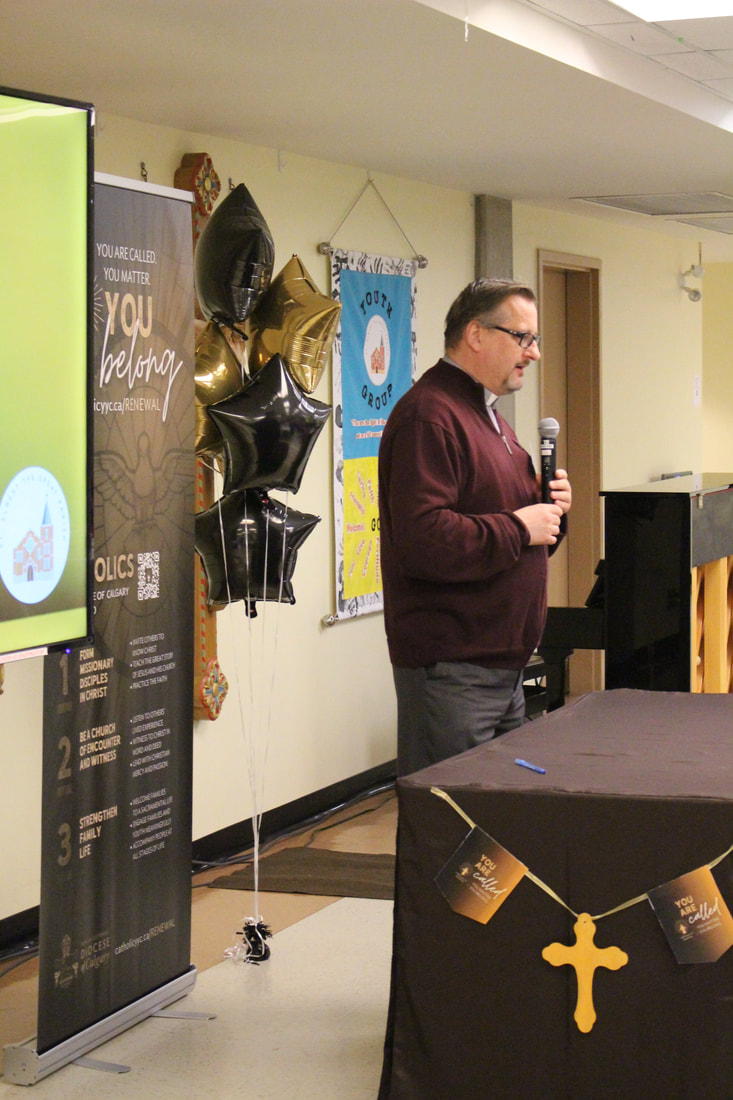
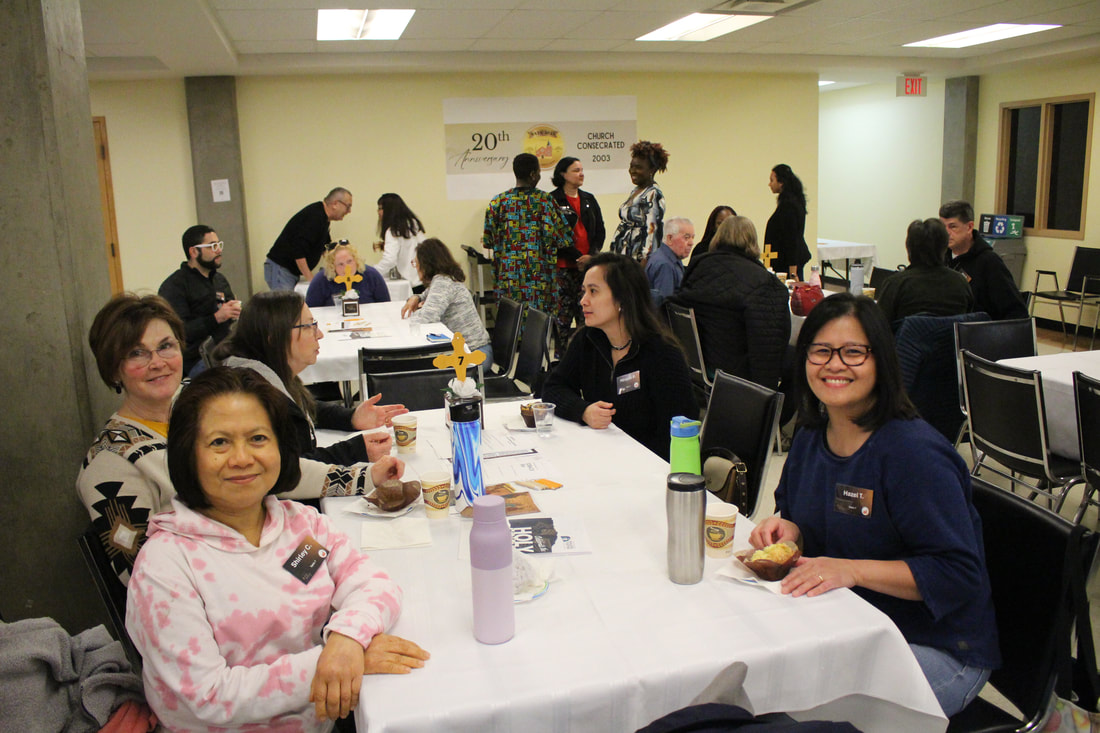
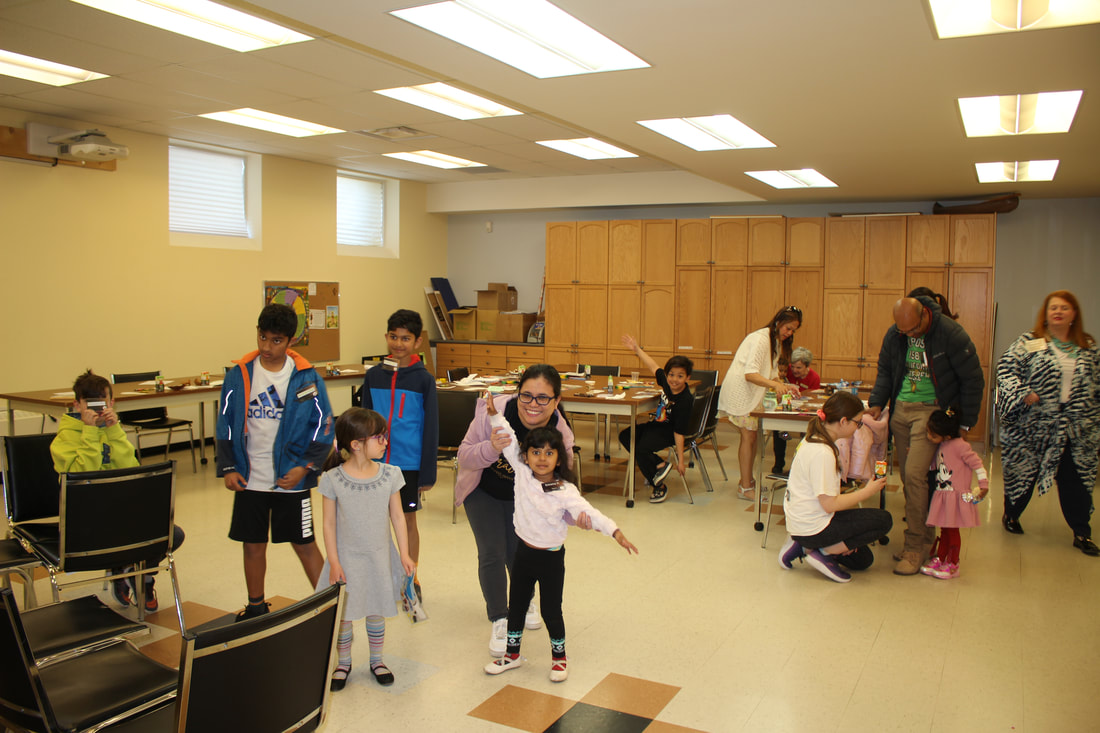
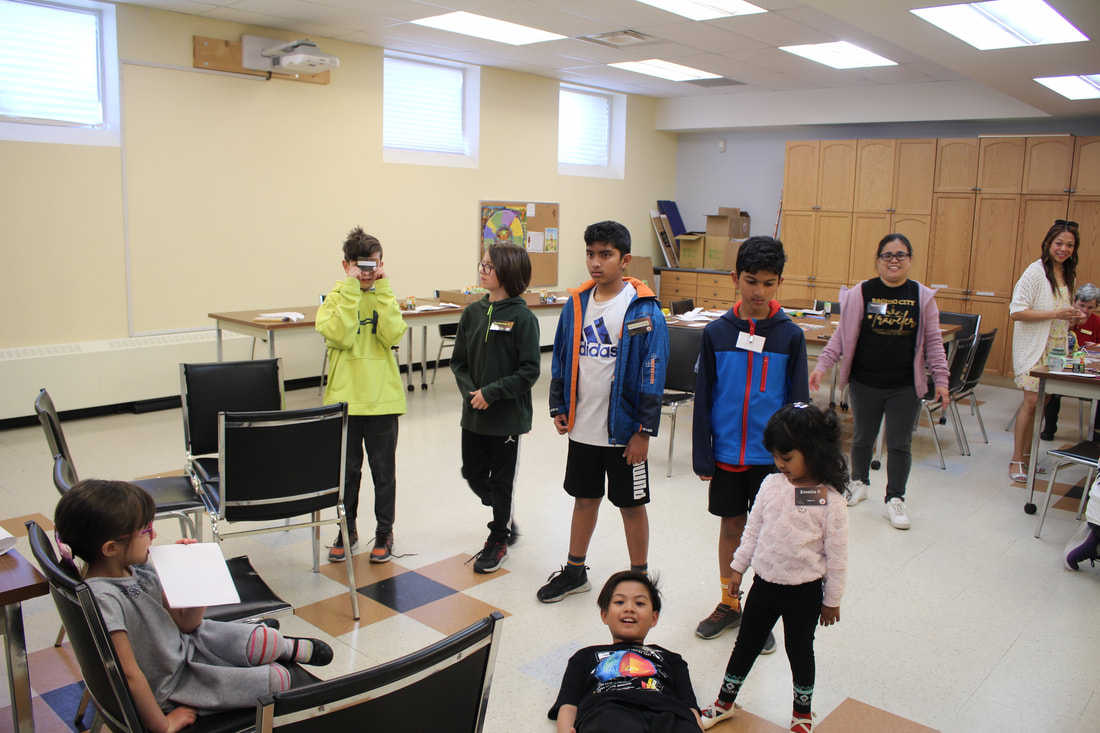
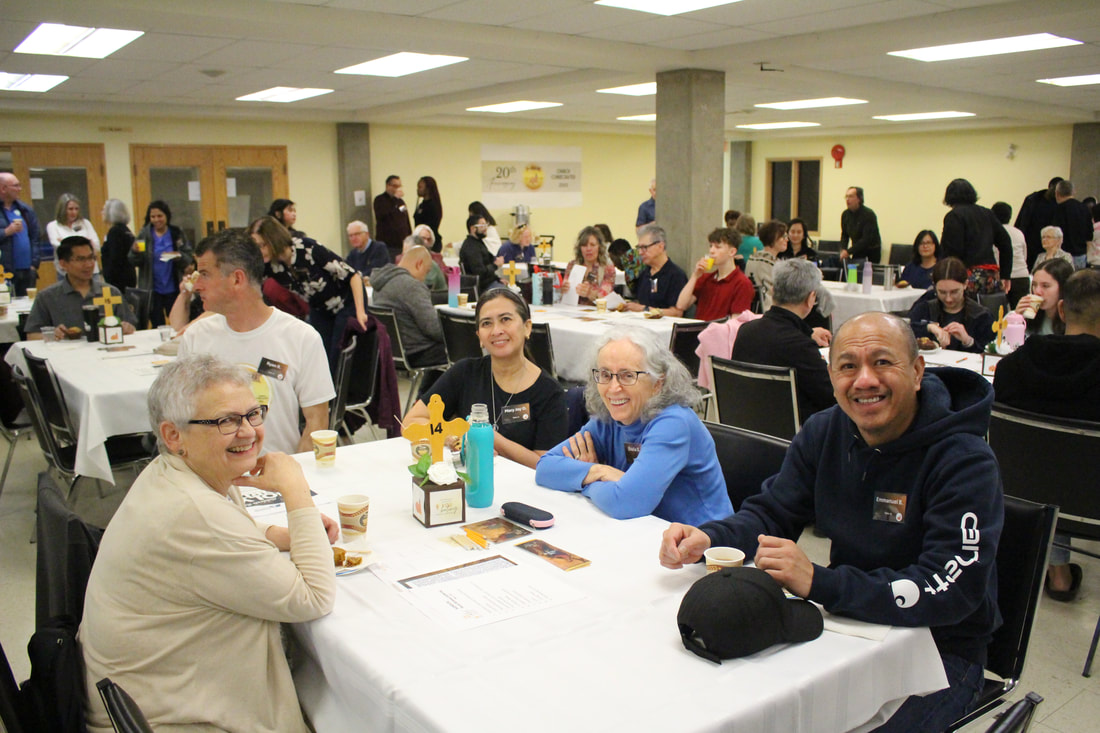
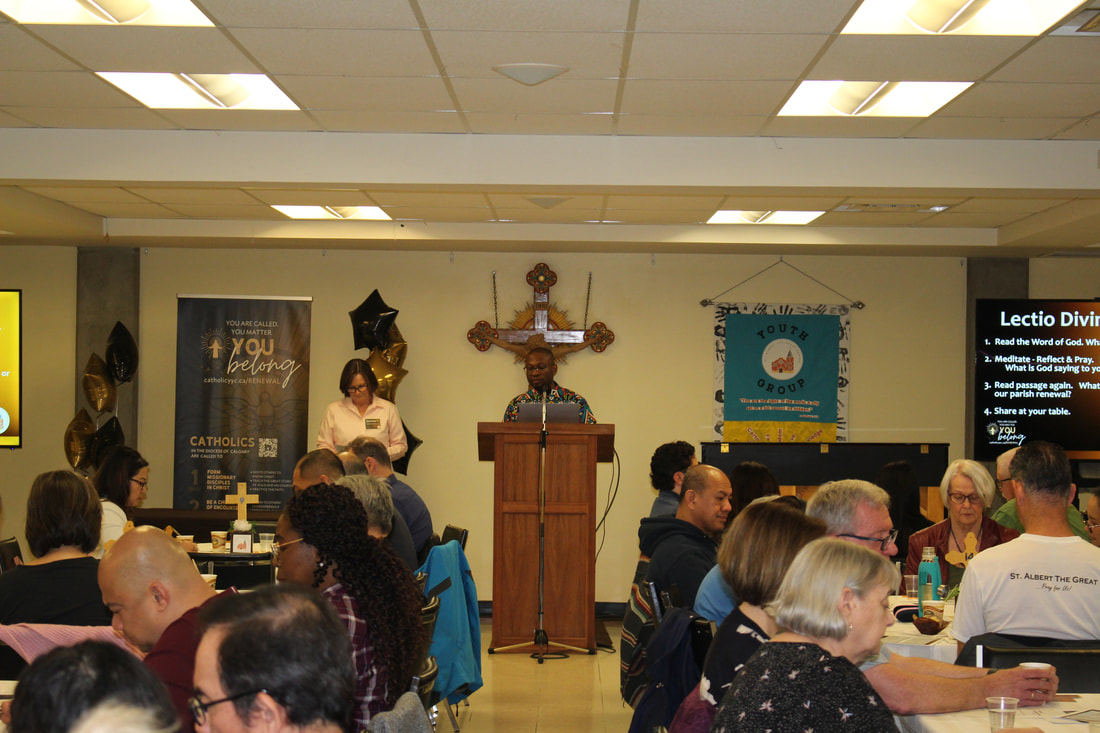
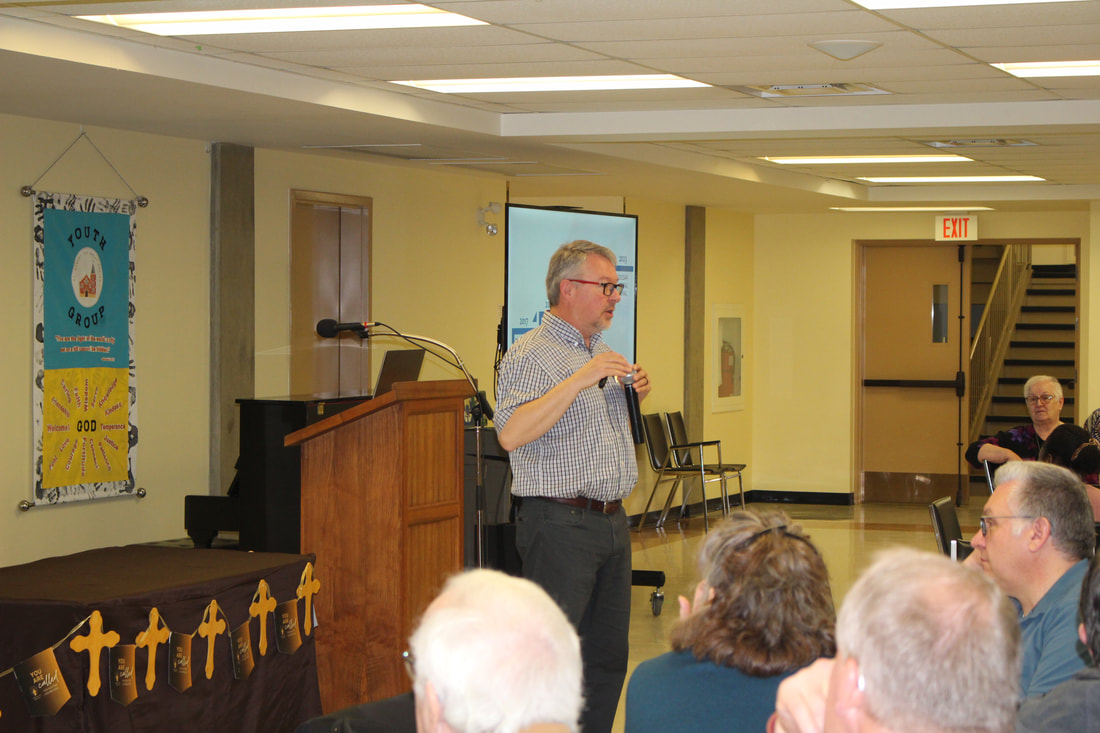
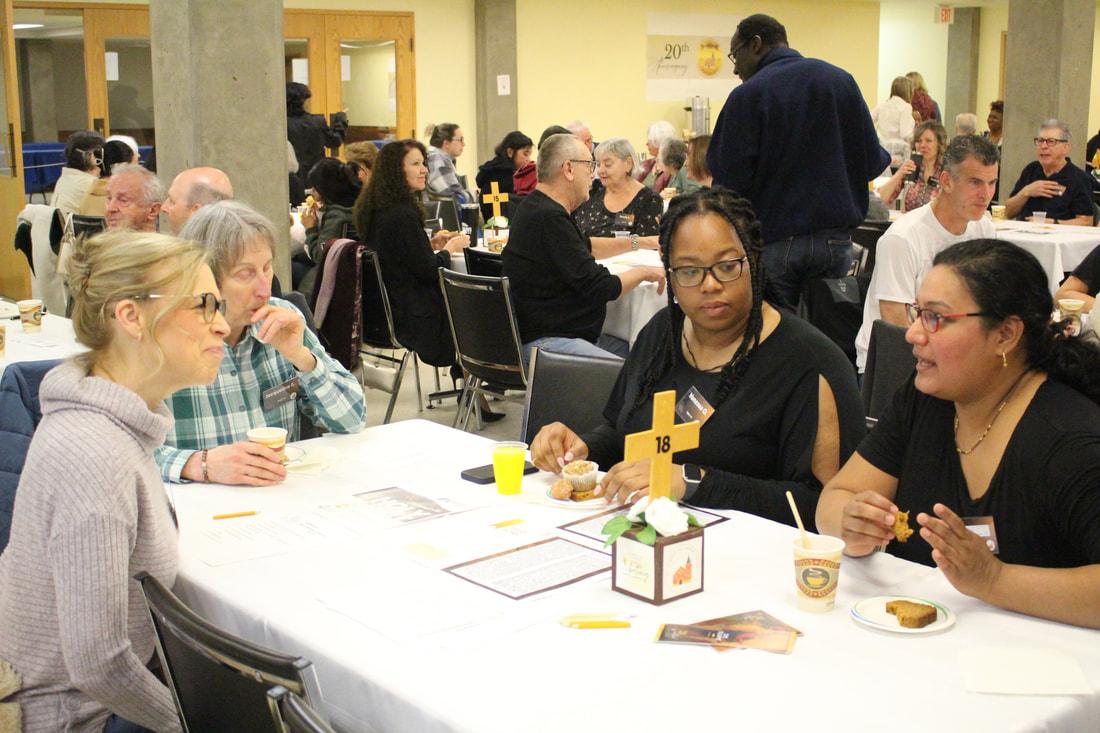
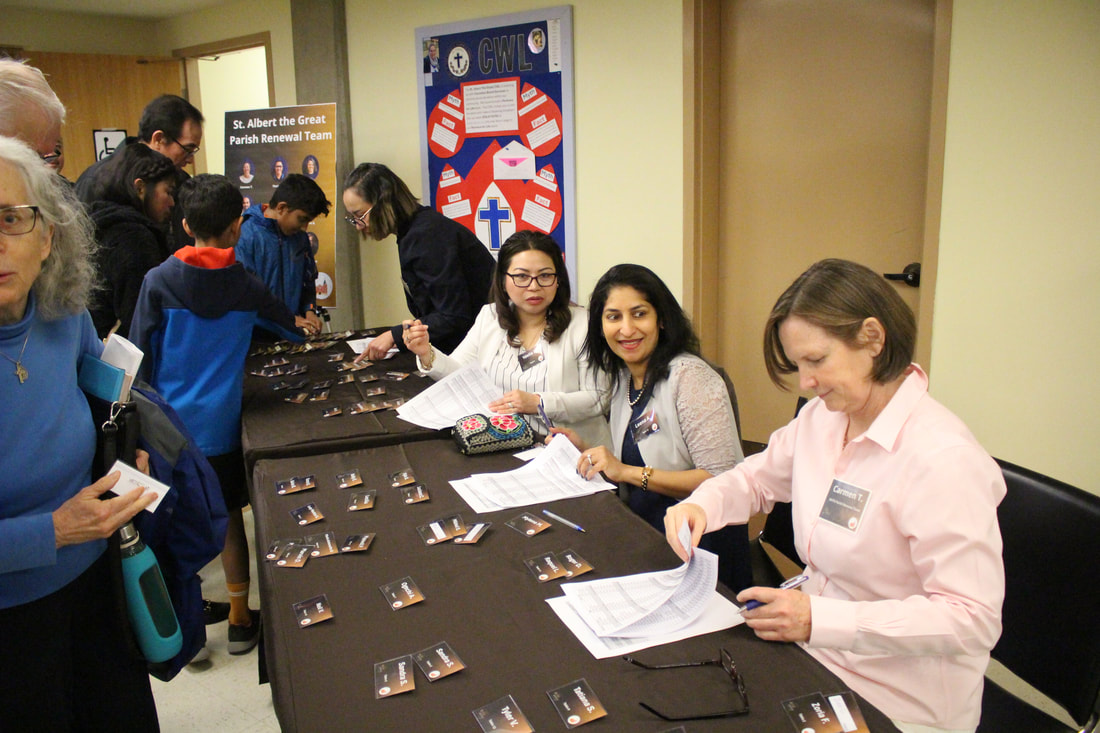
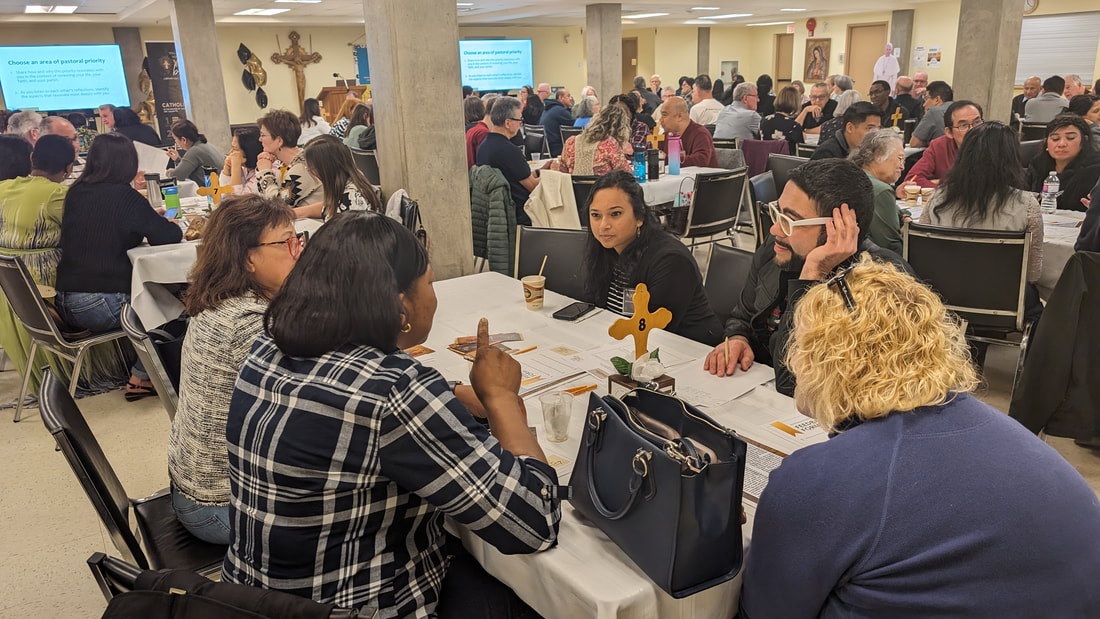
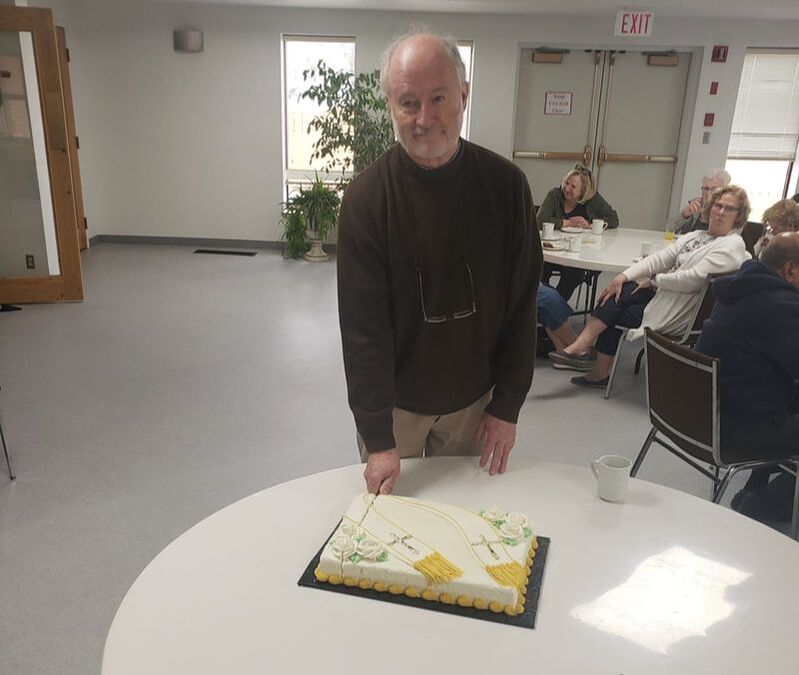
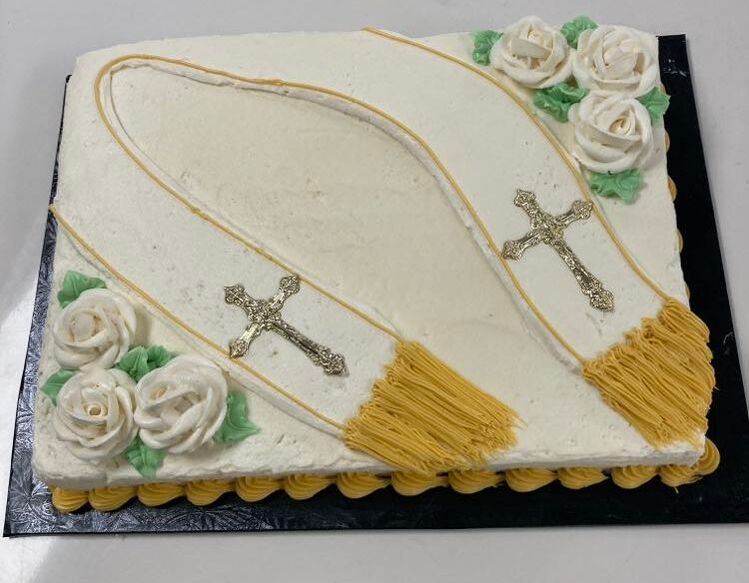
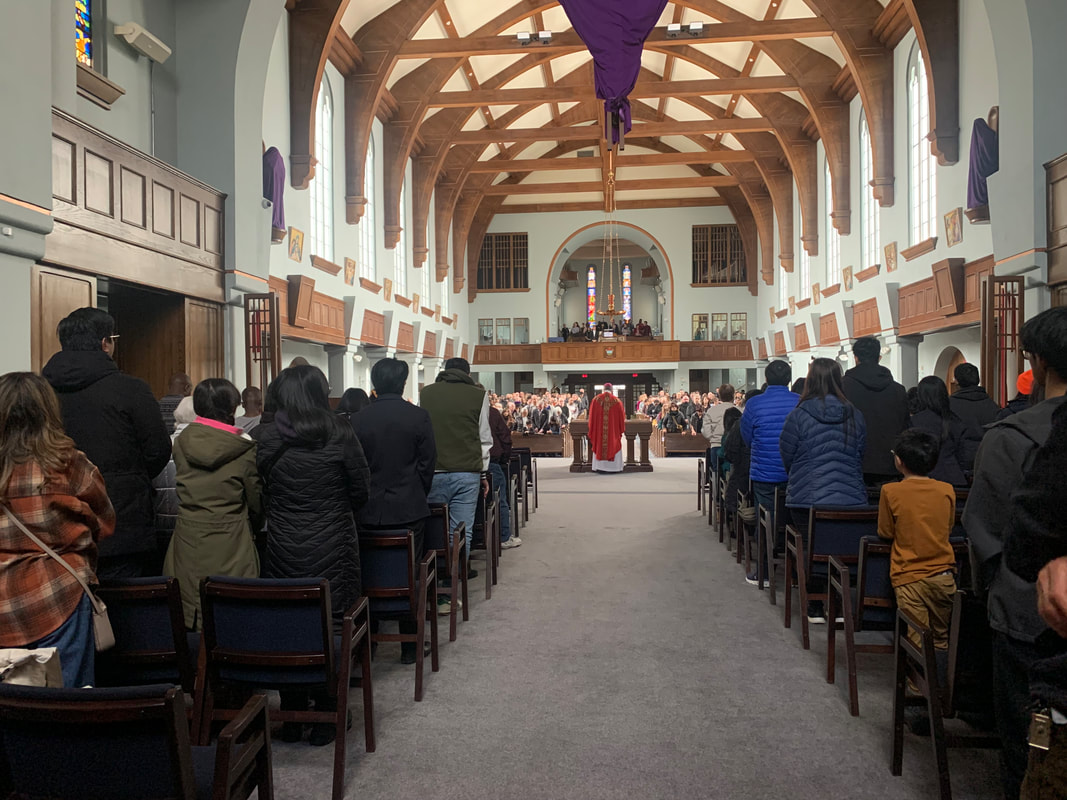
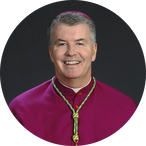
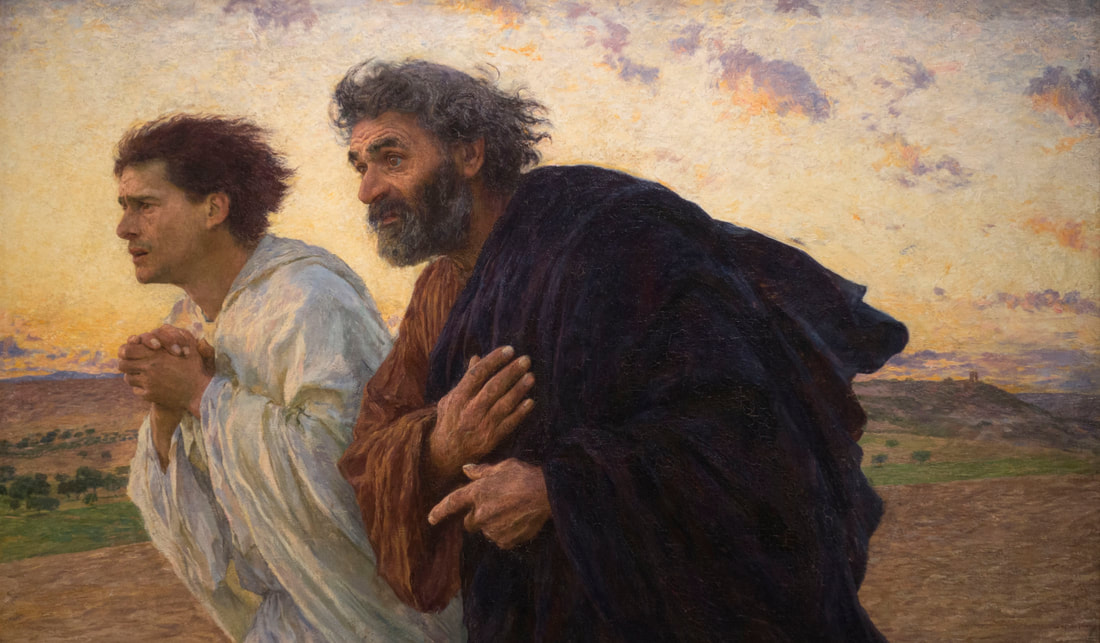

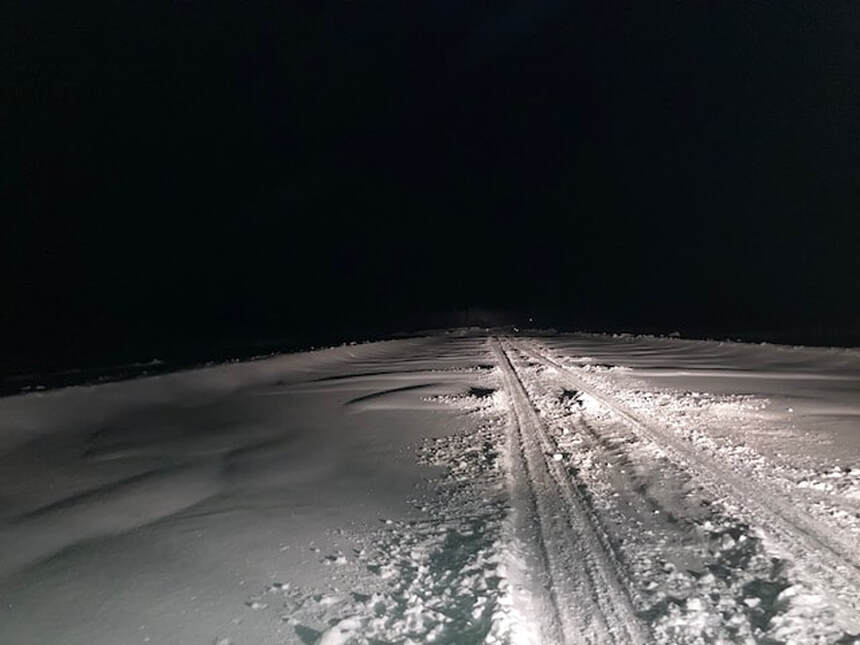
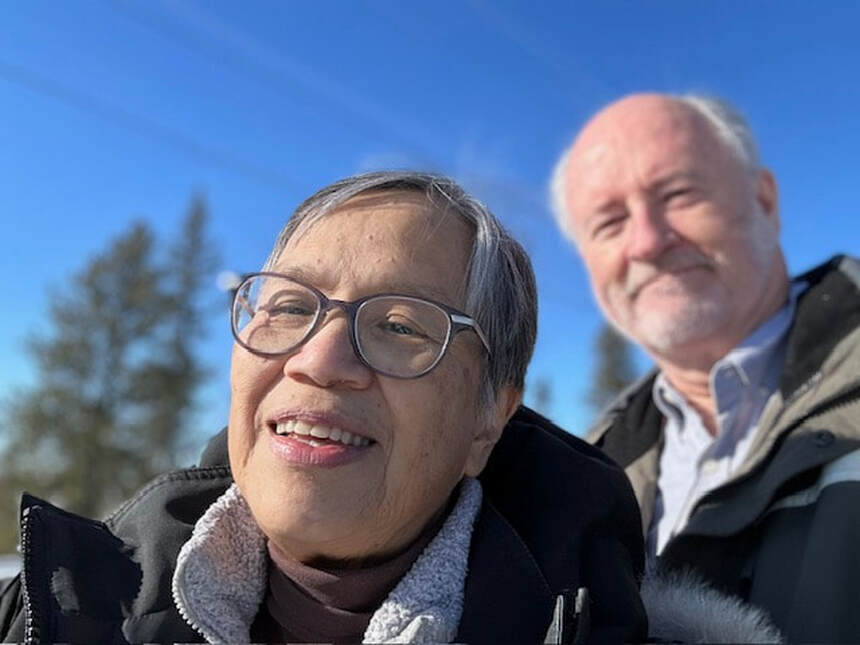








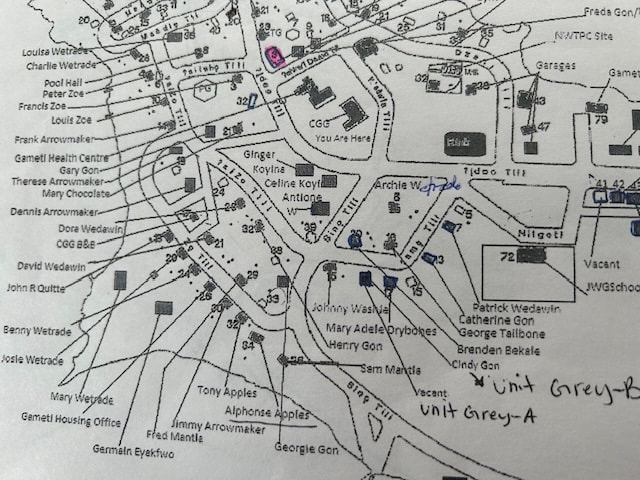
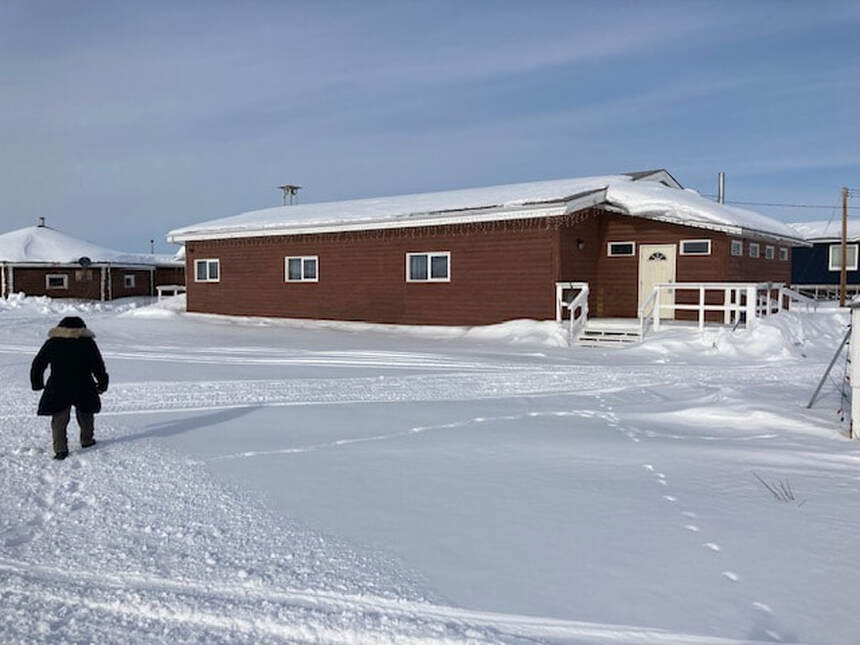
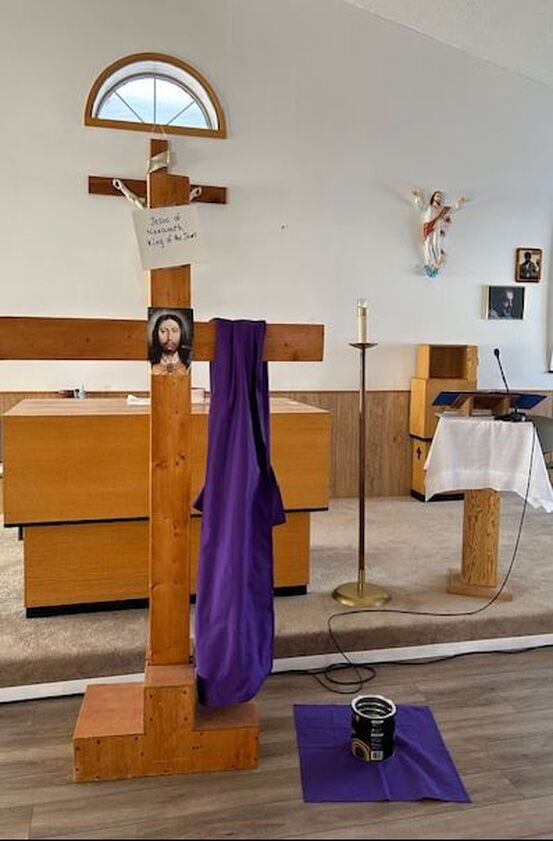
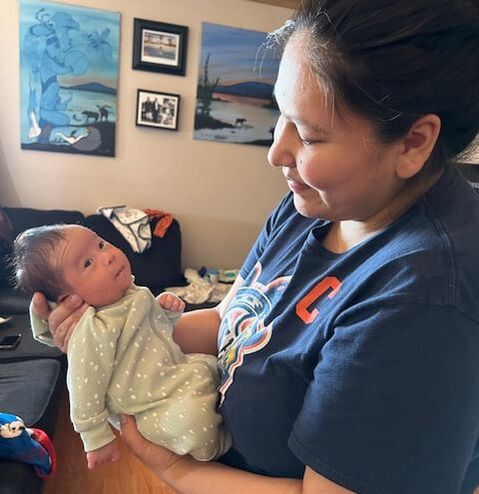
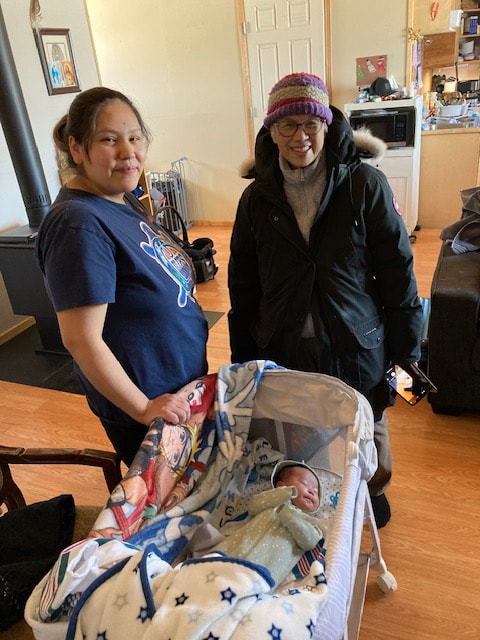

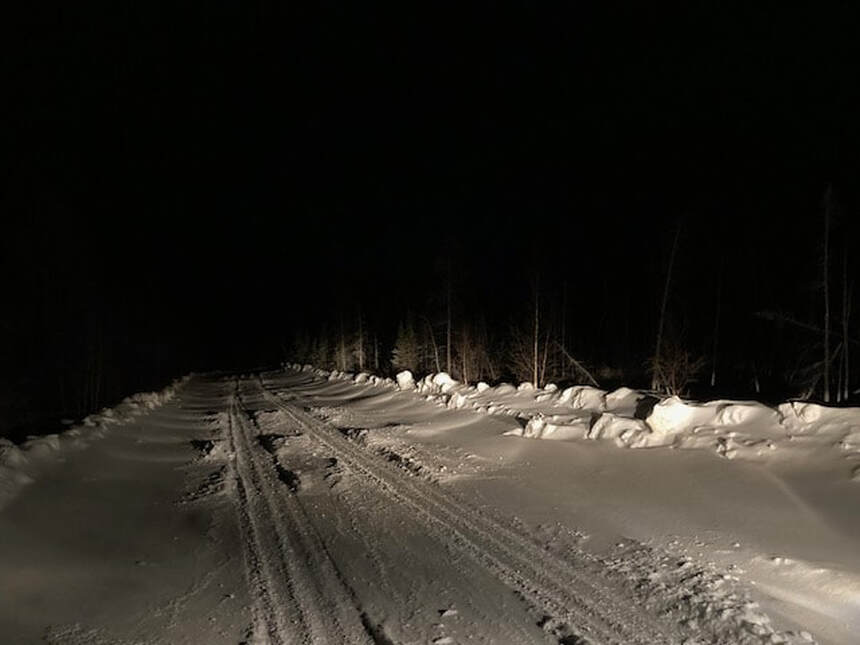
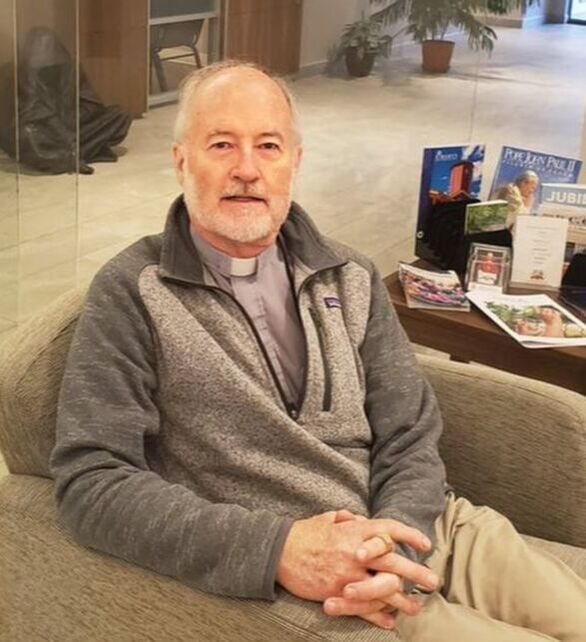
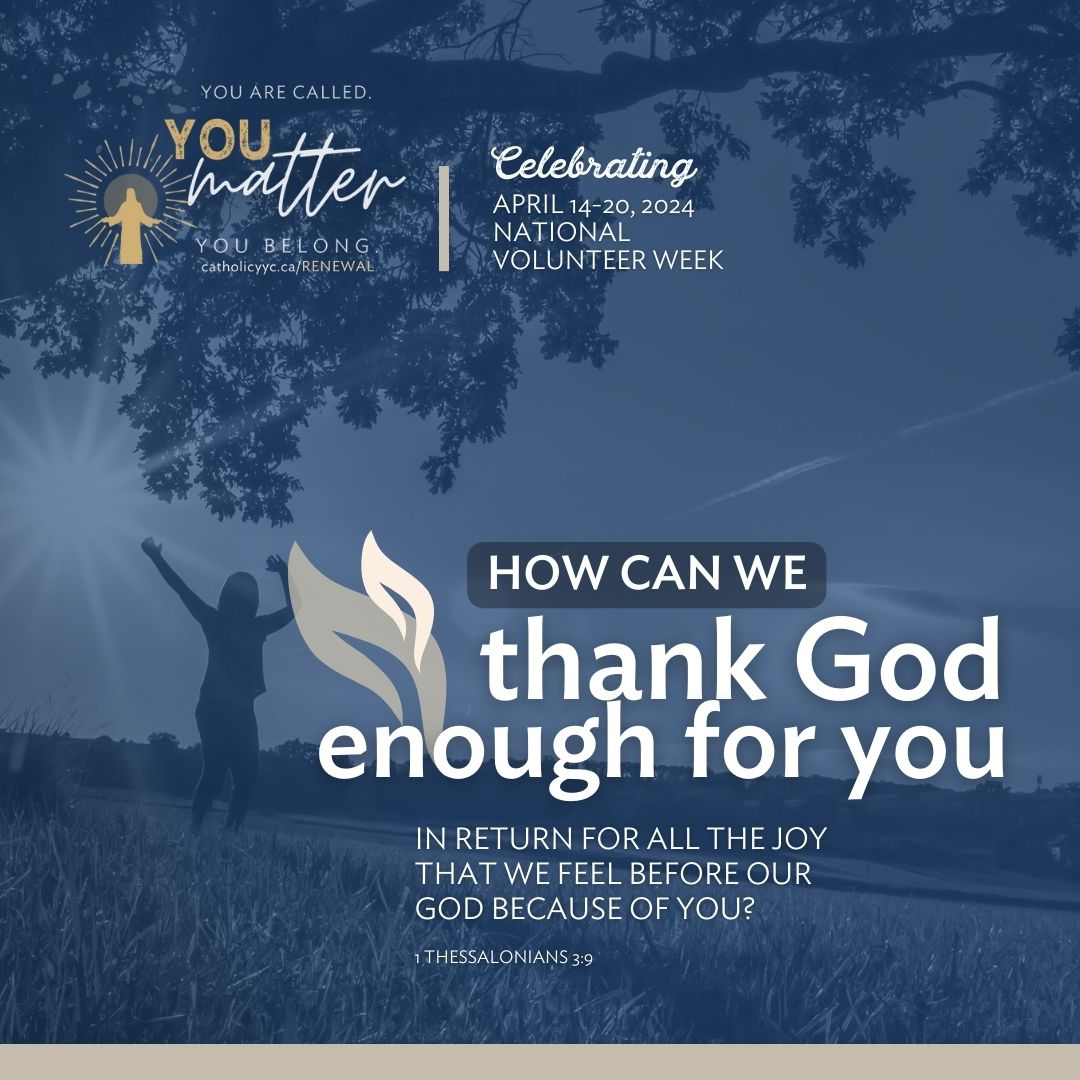
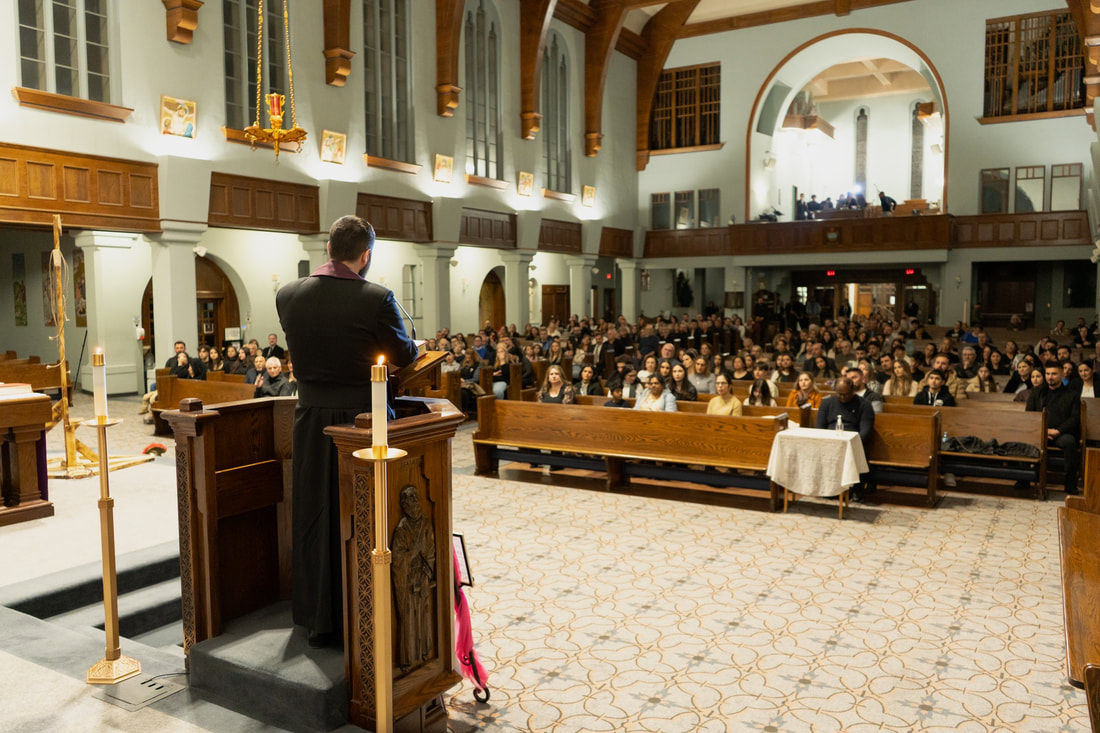
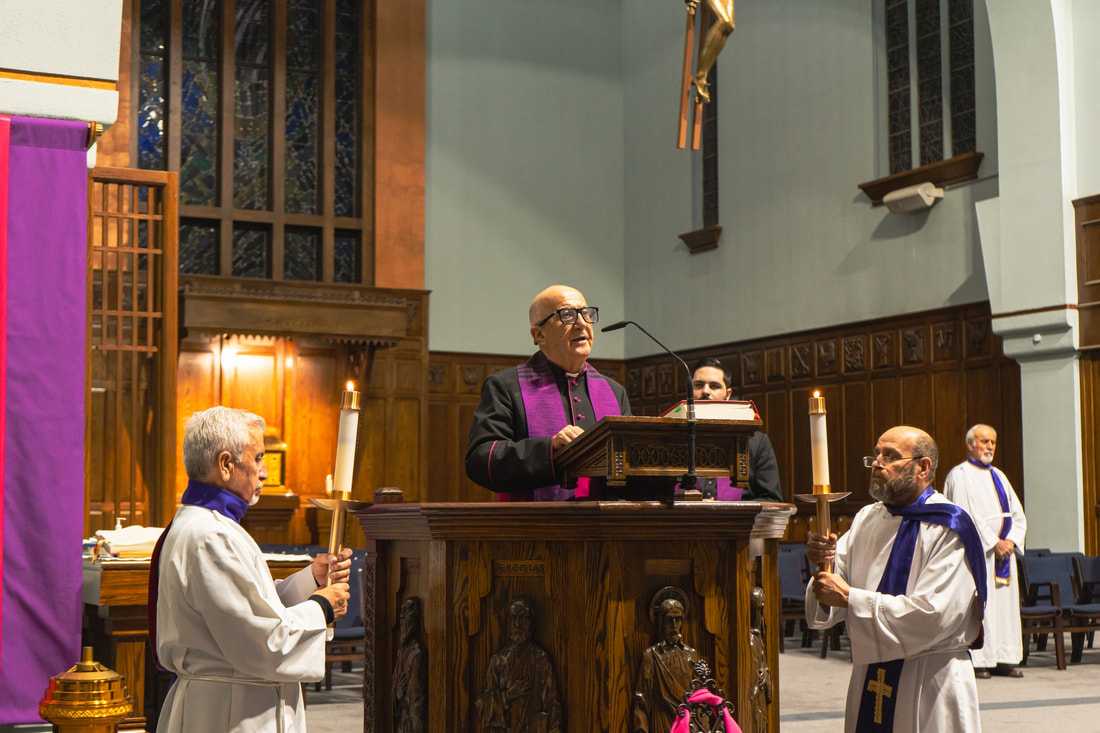
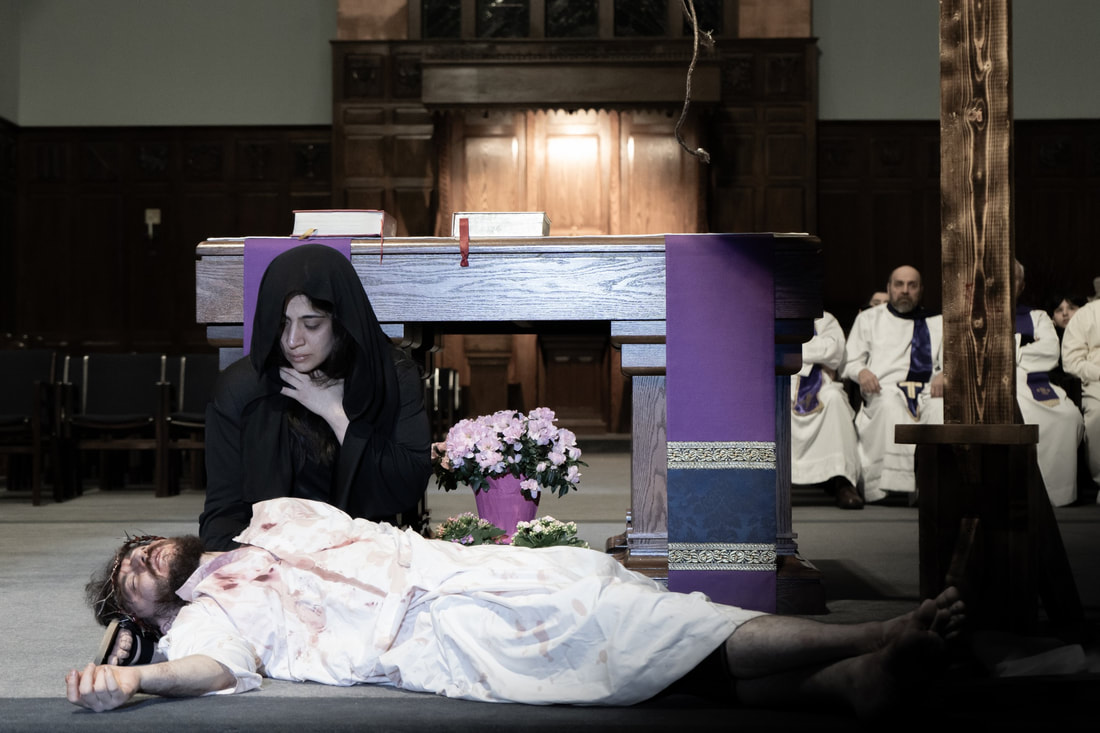
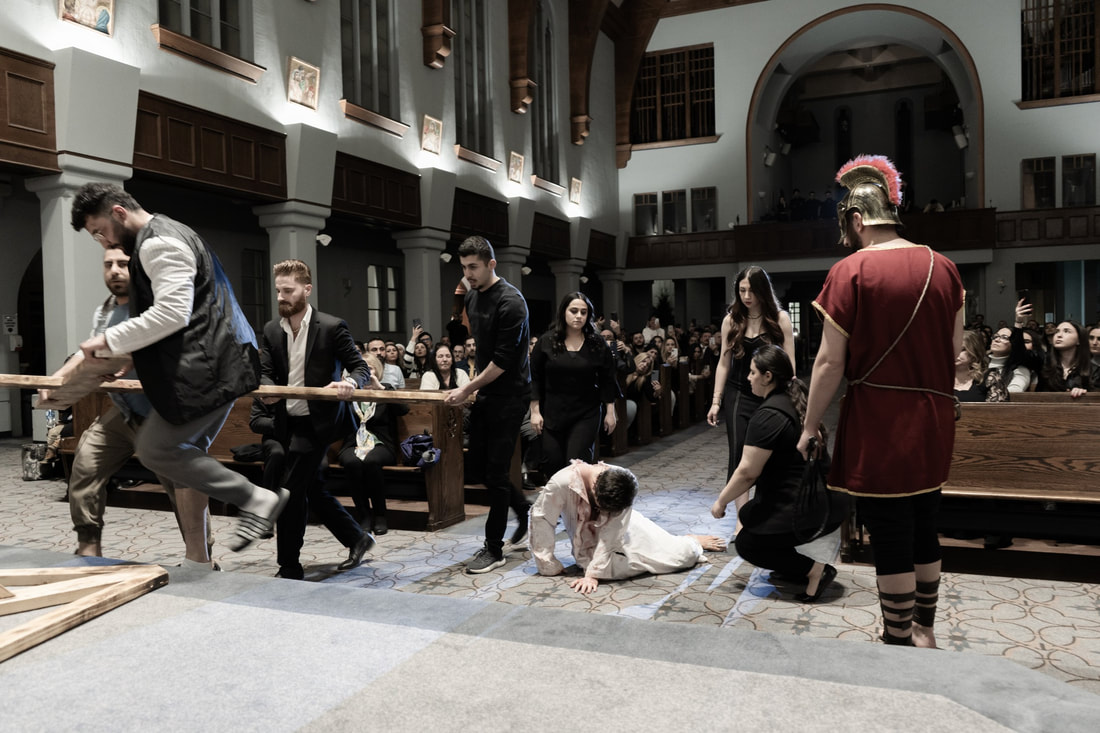
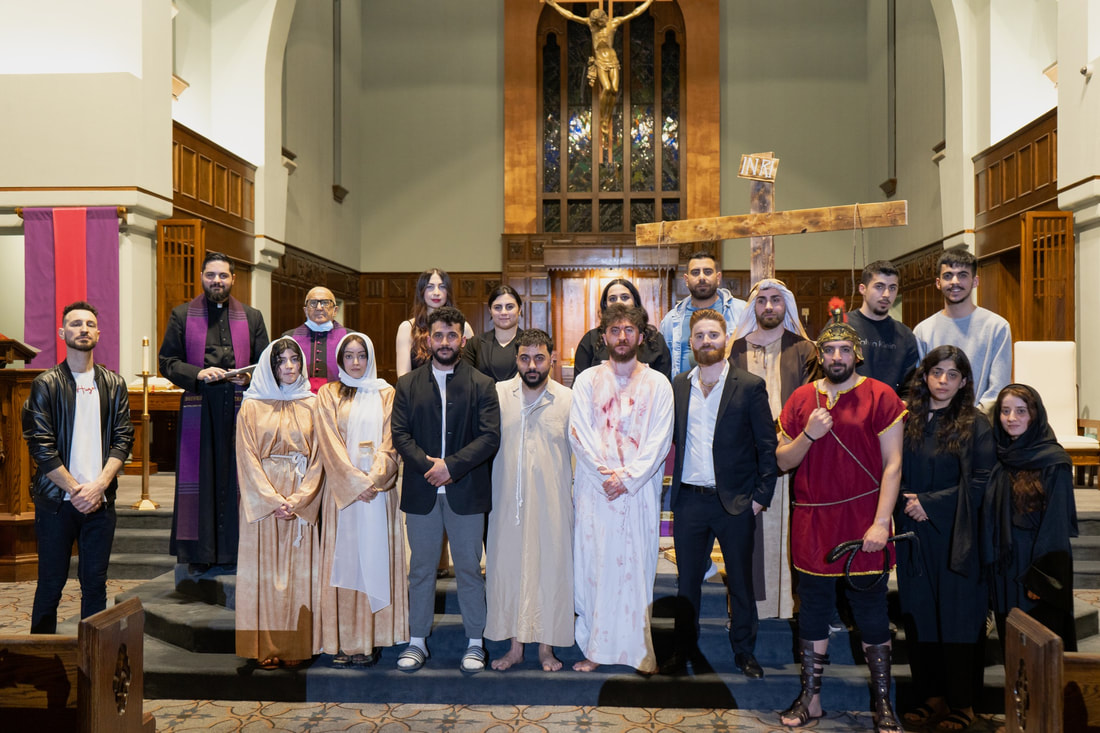
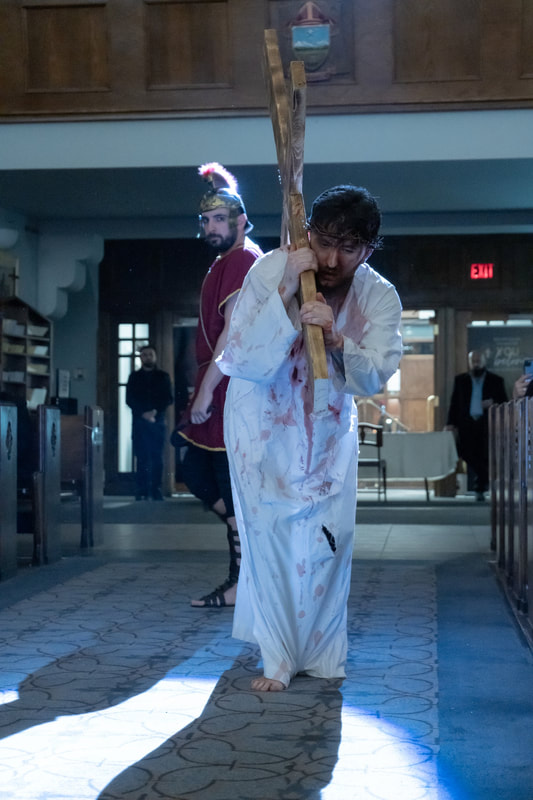
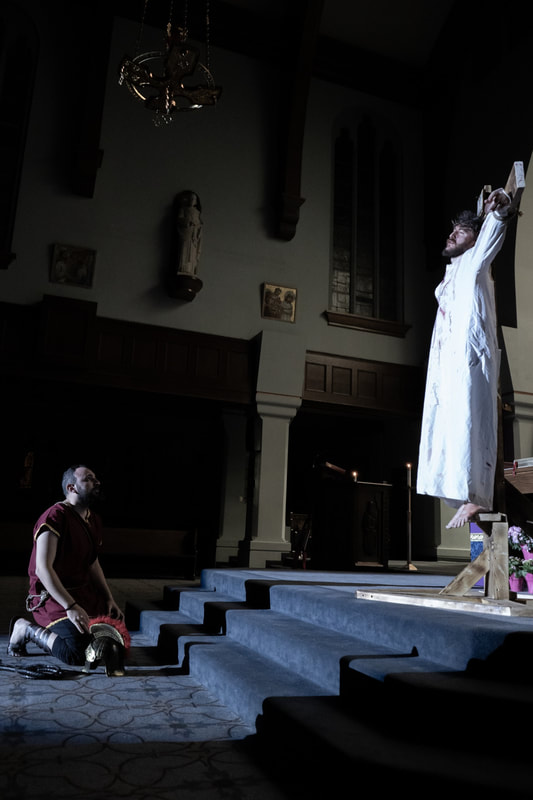
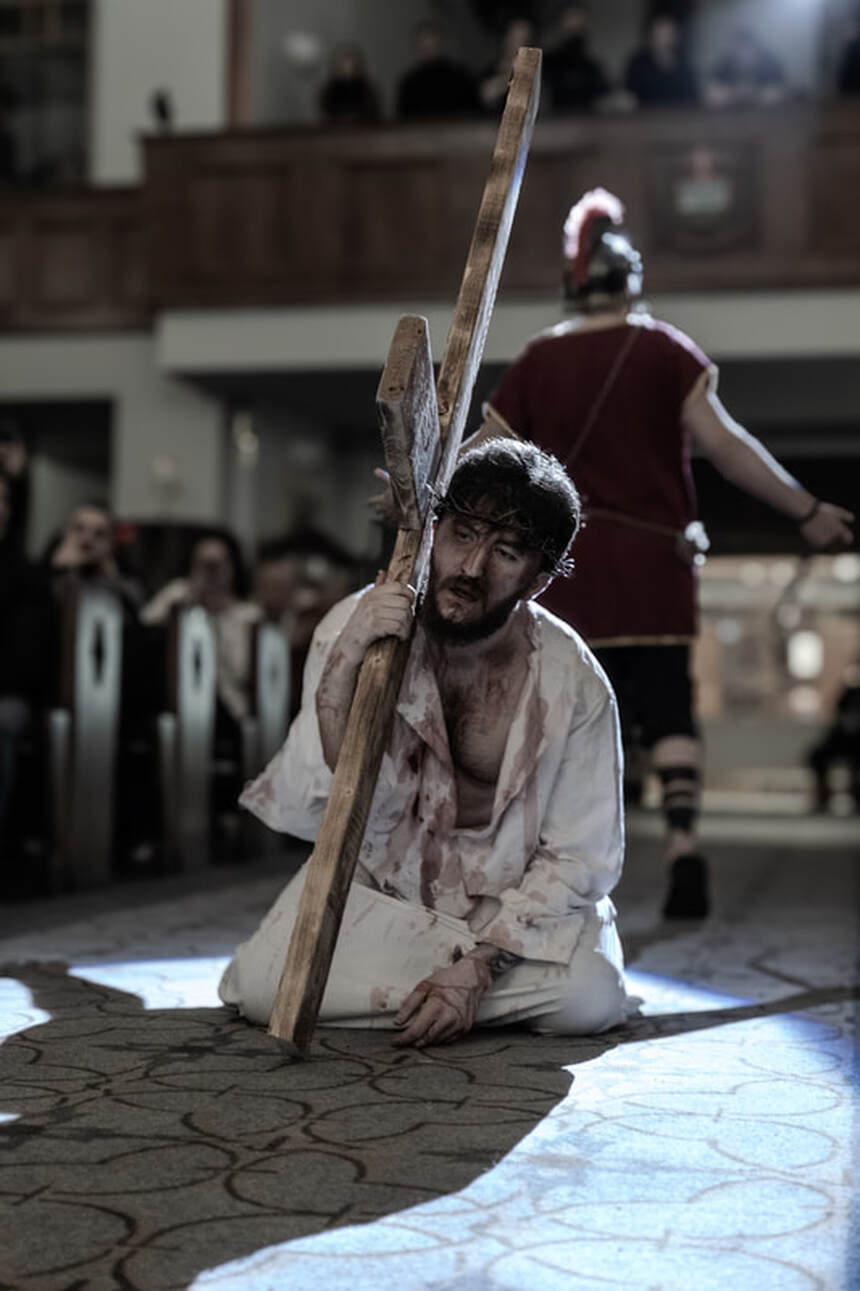
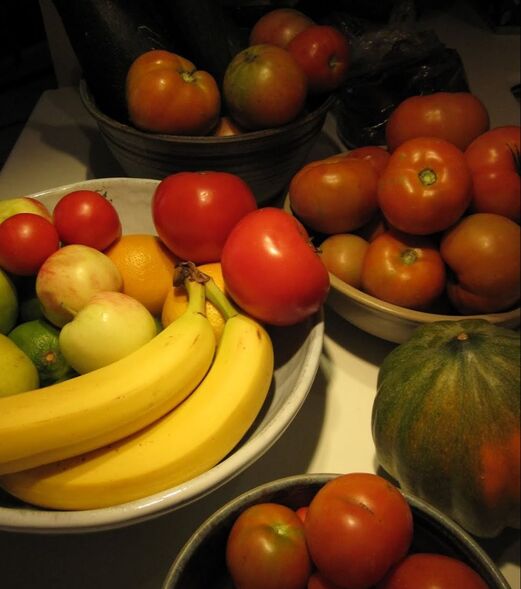




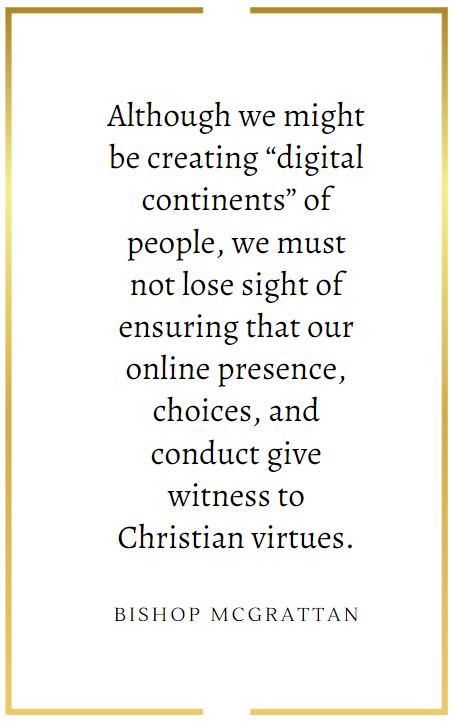
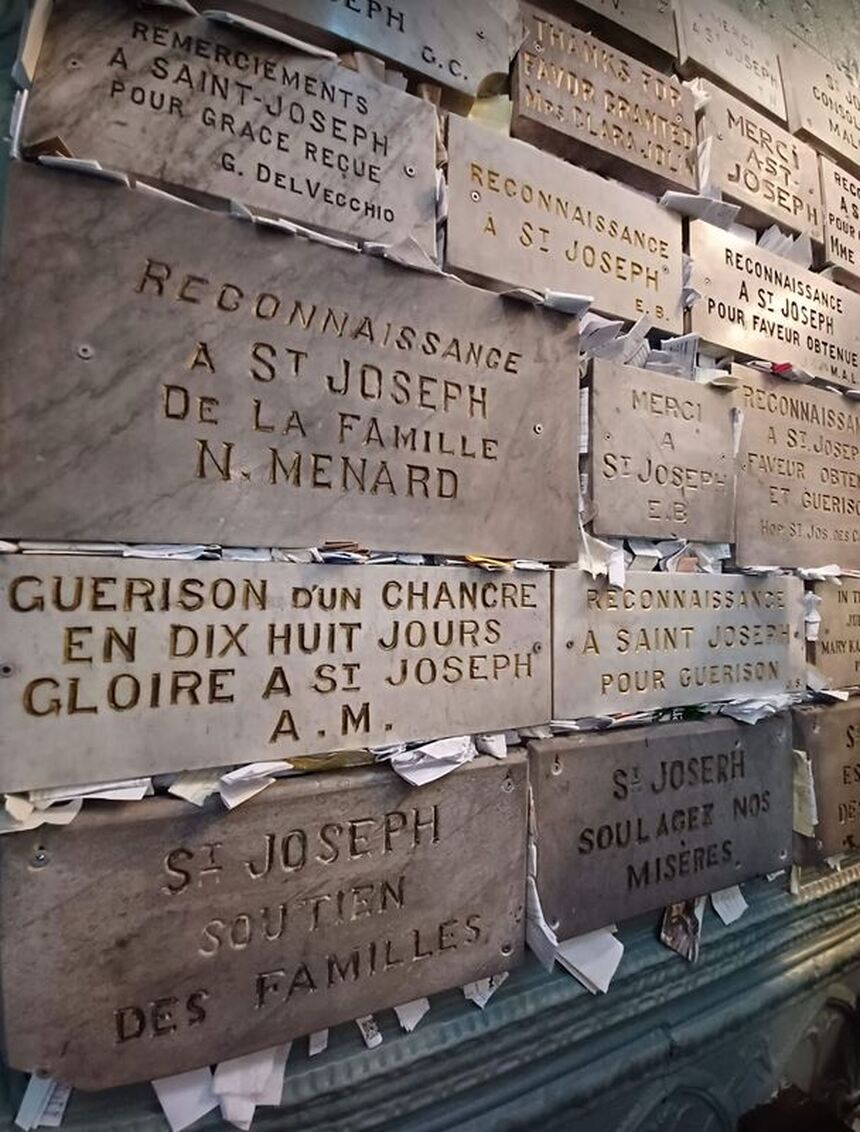
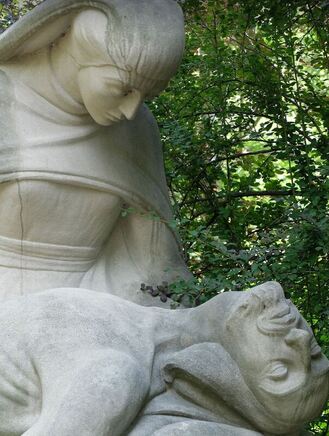
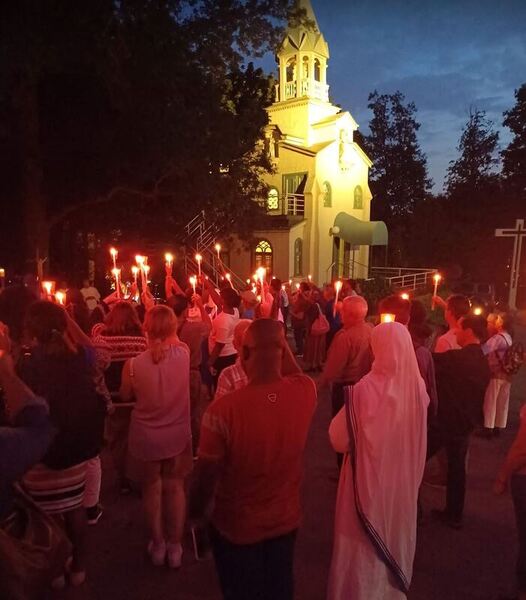
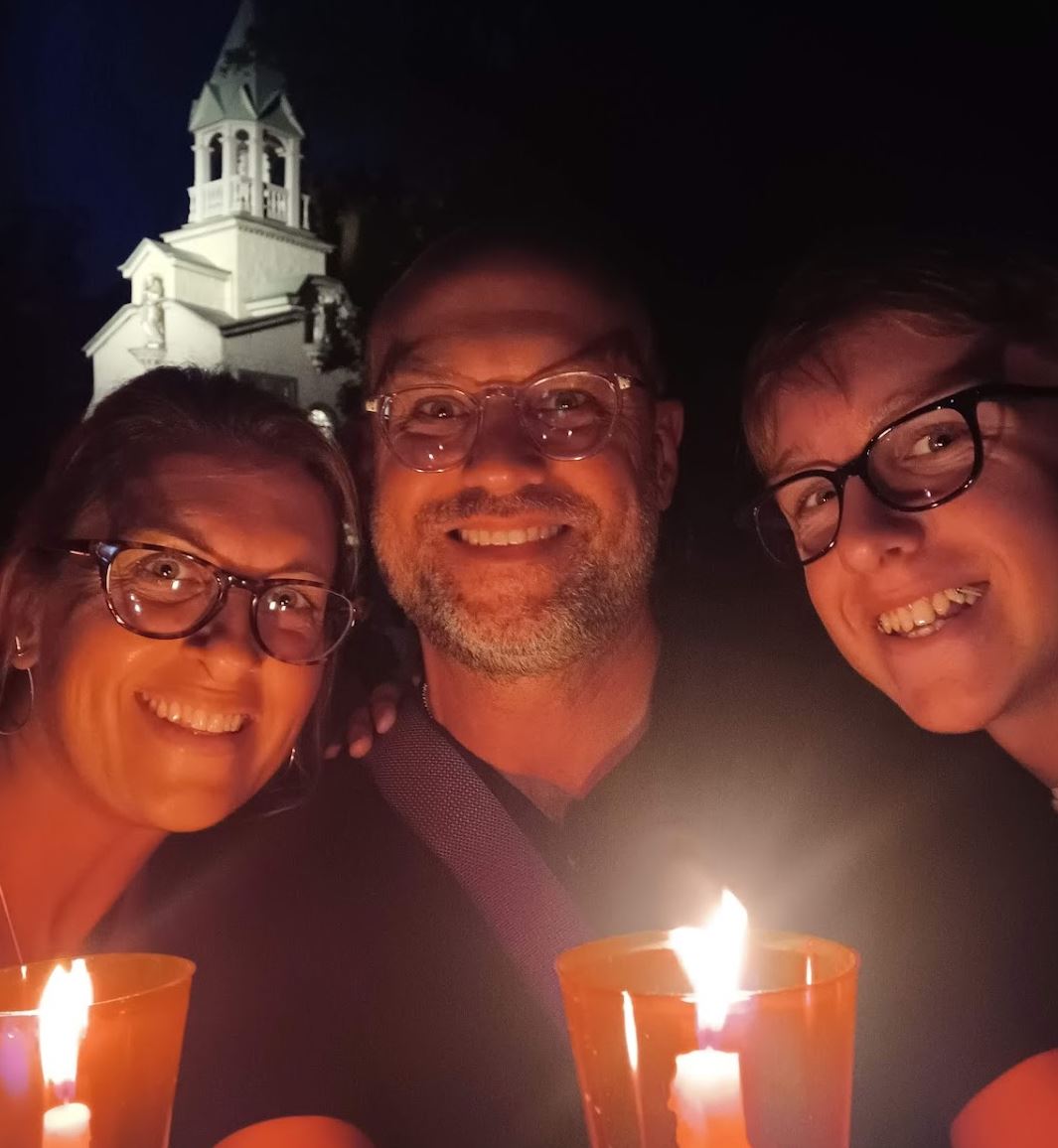
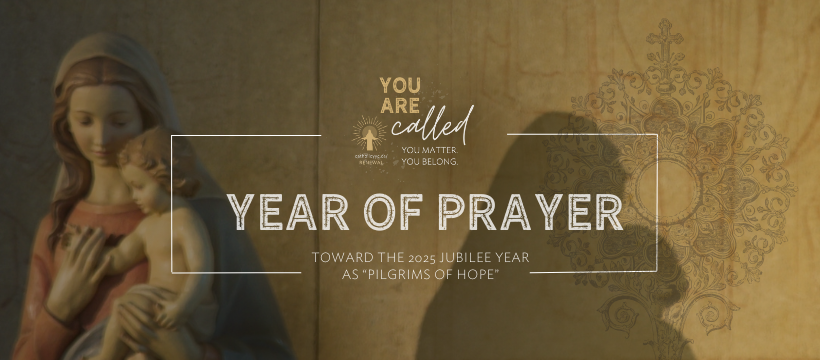

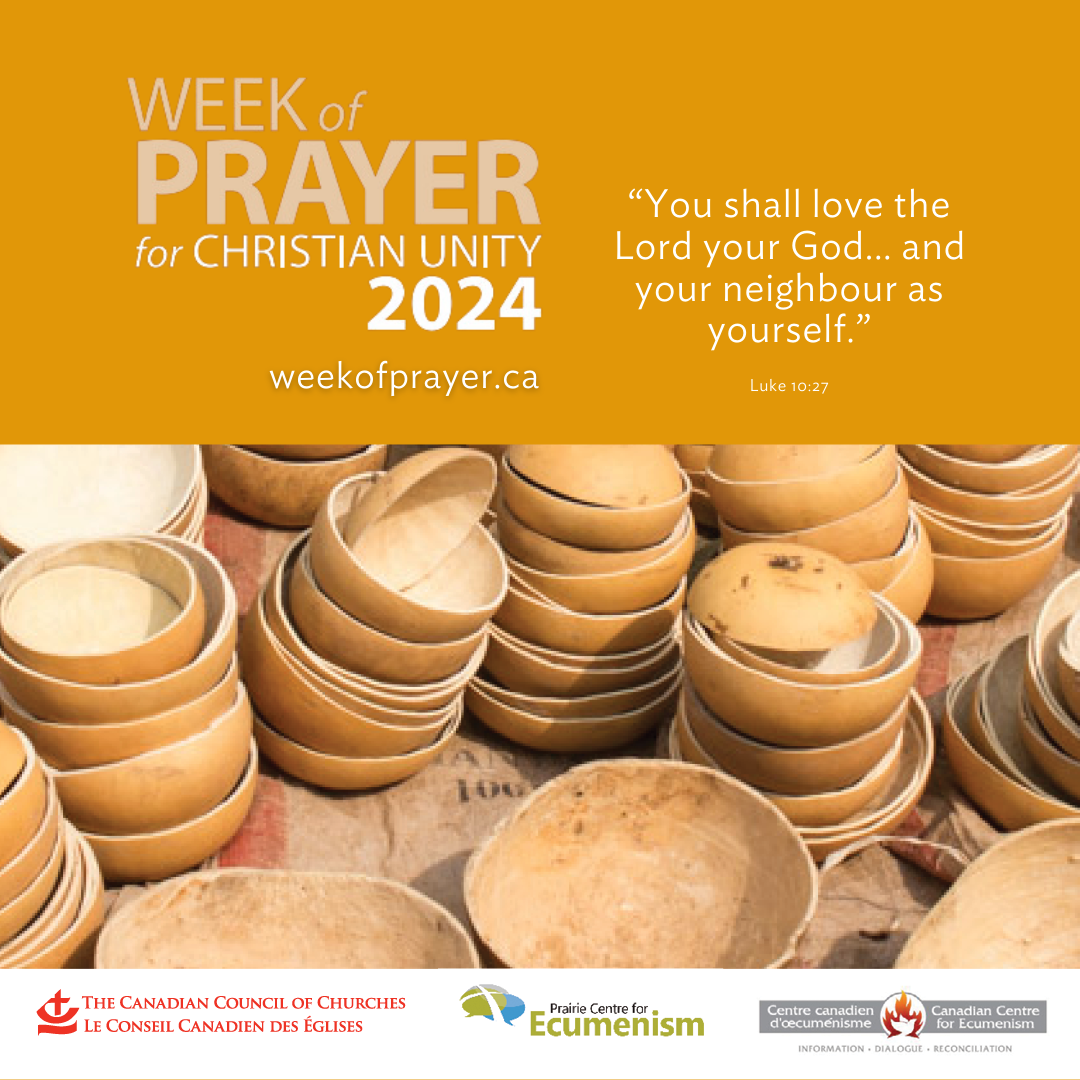
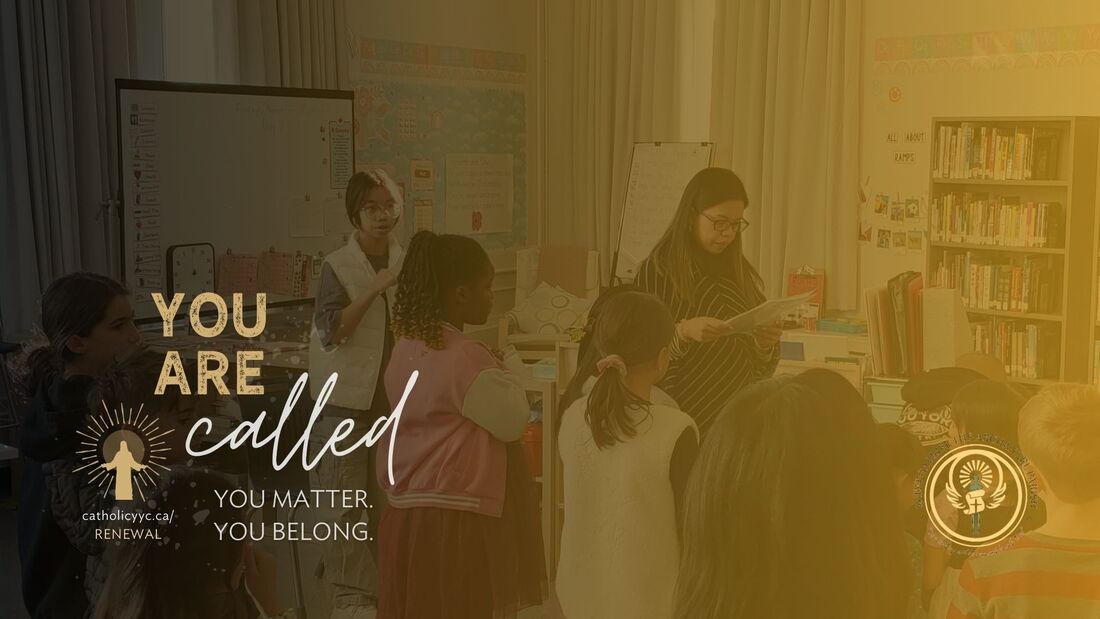

 RSS Feed
RSS Feed